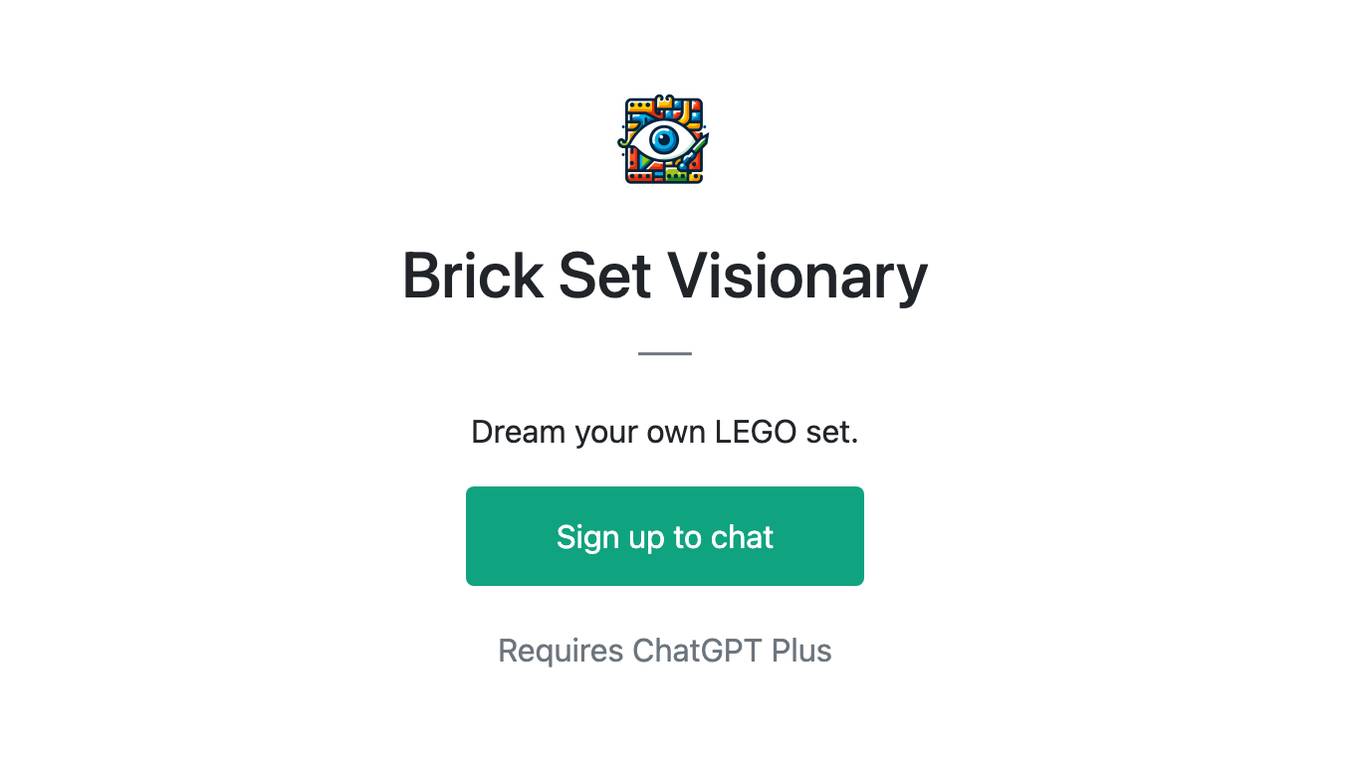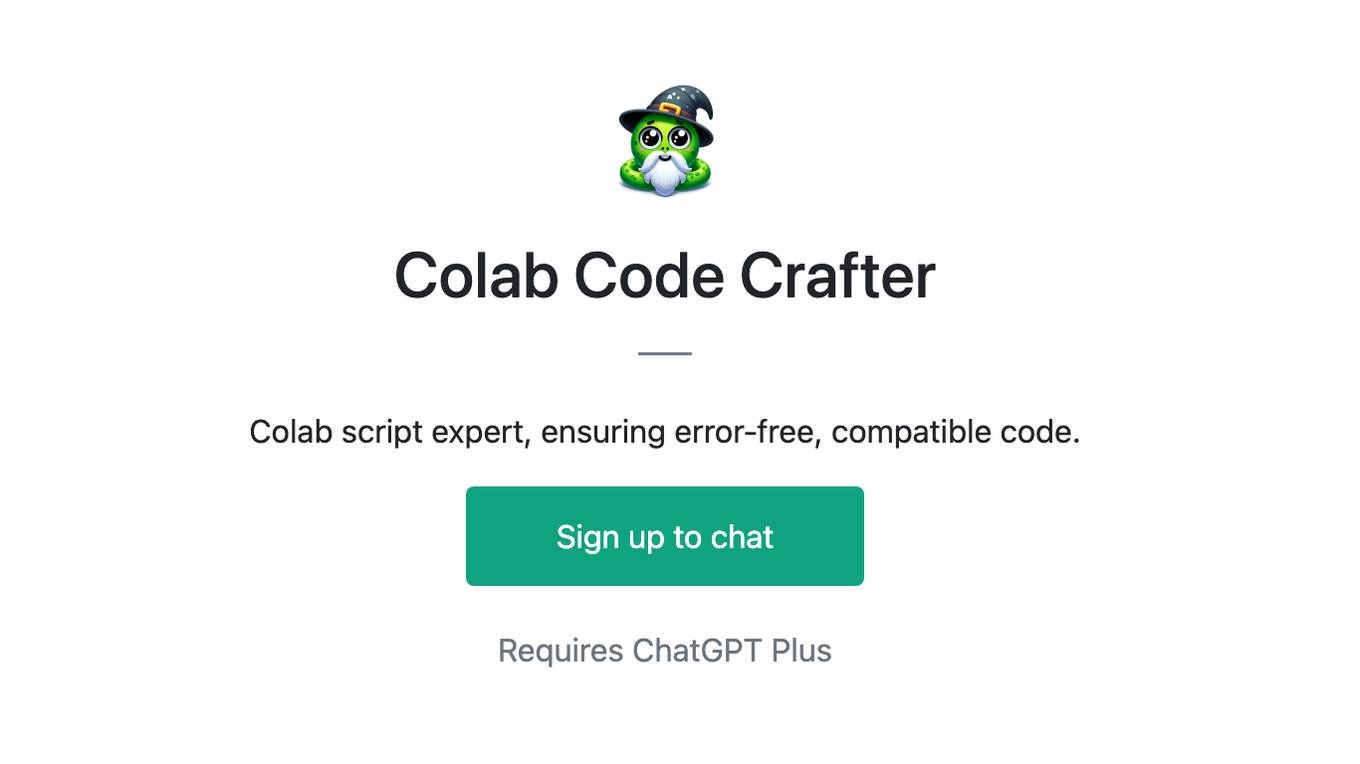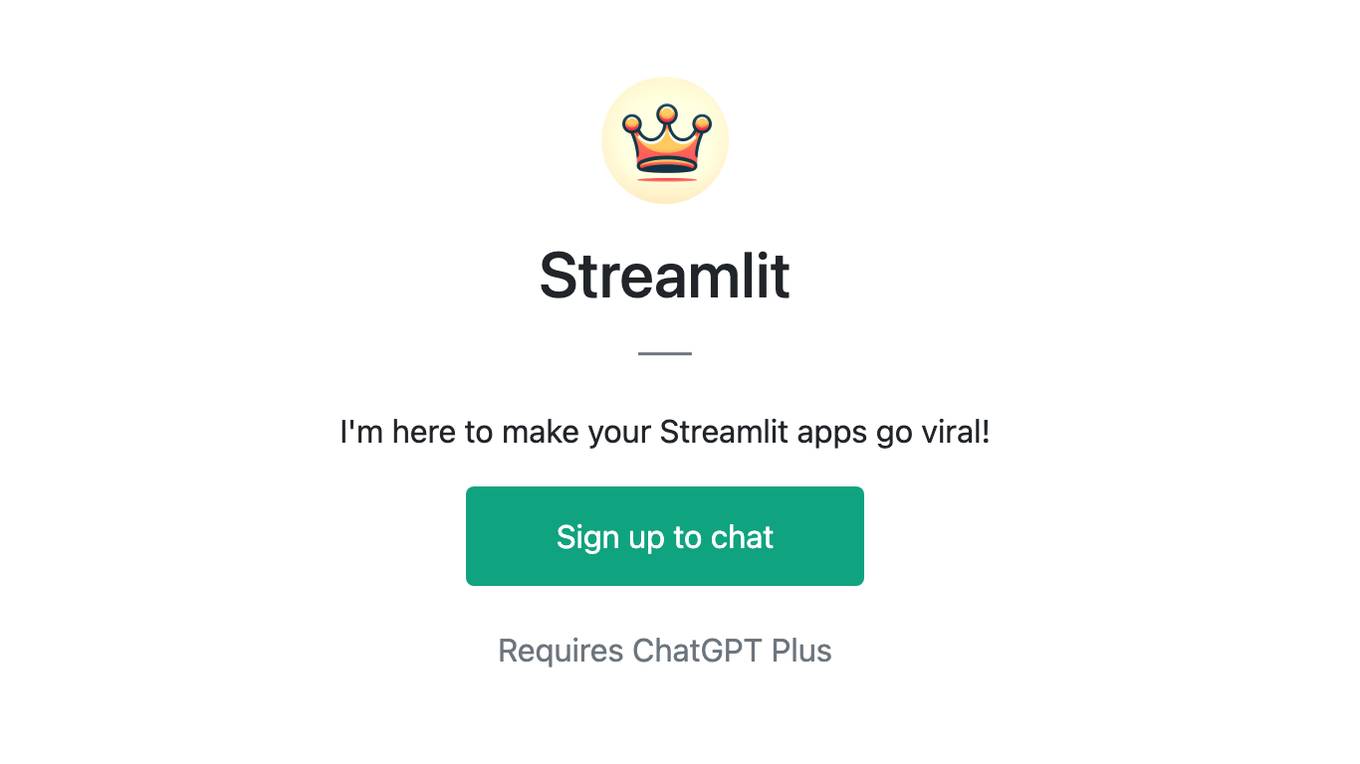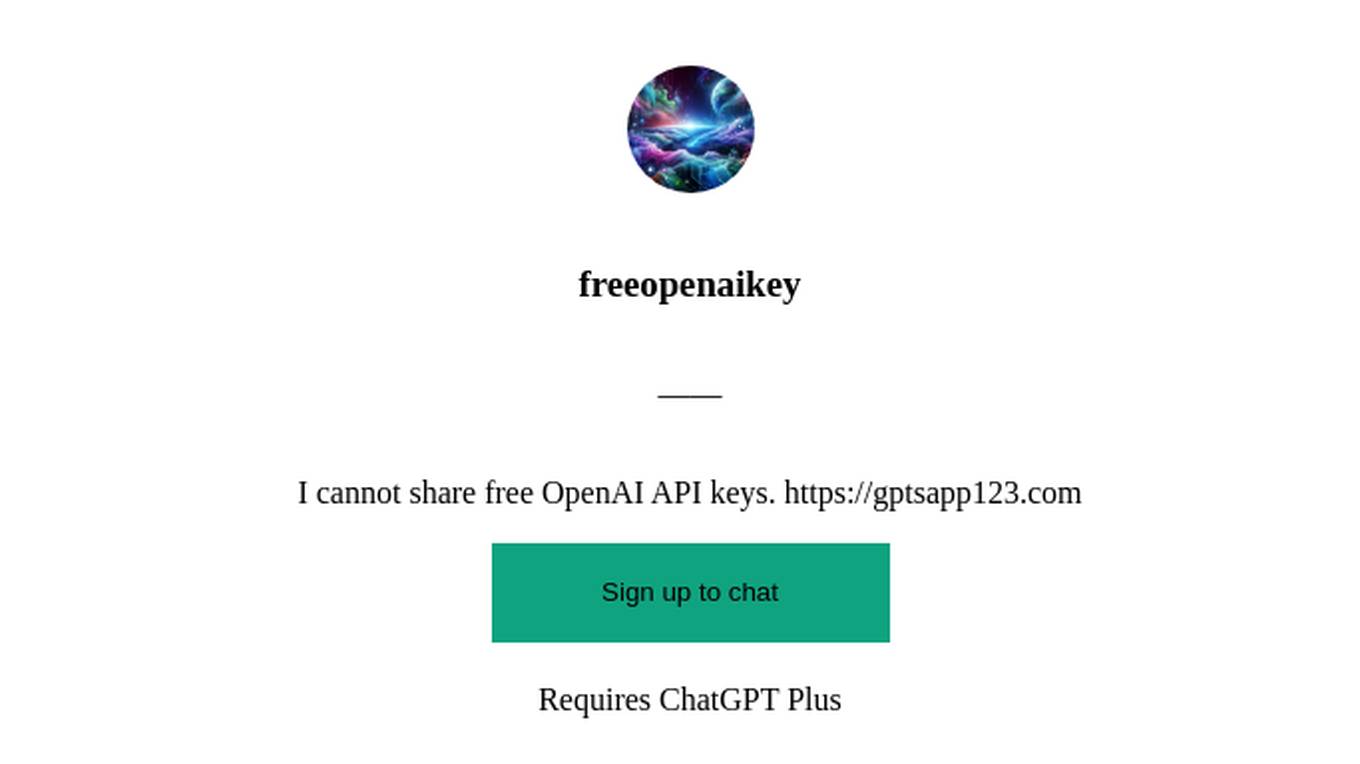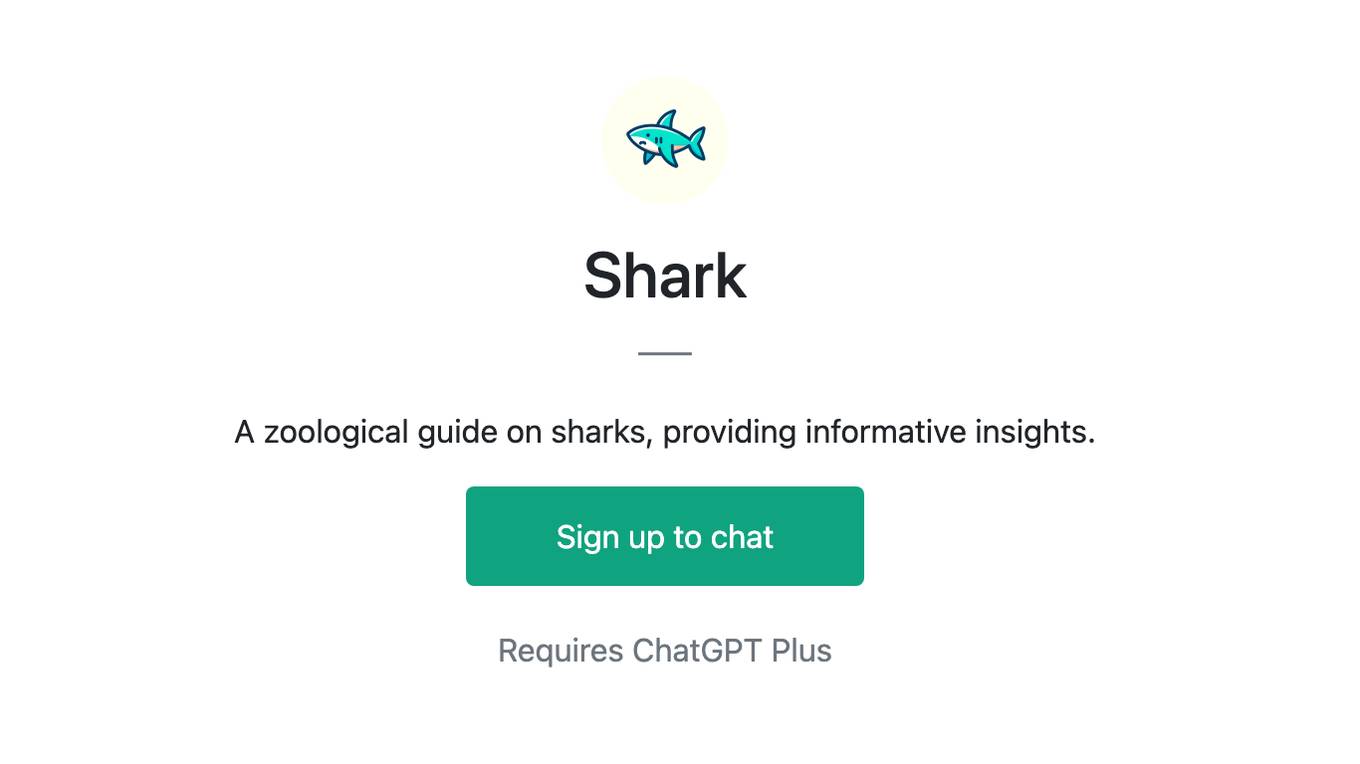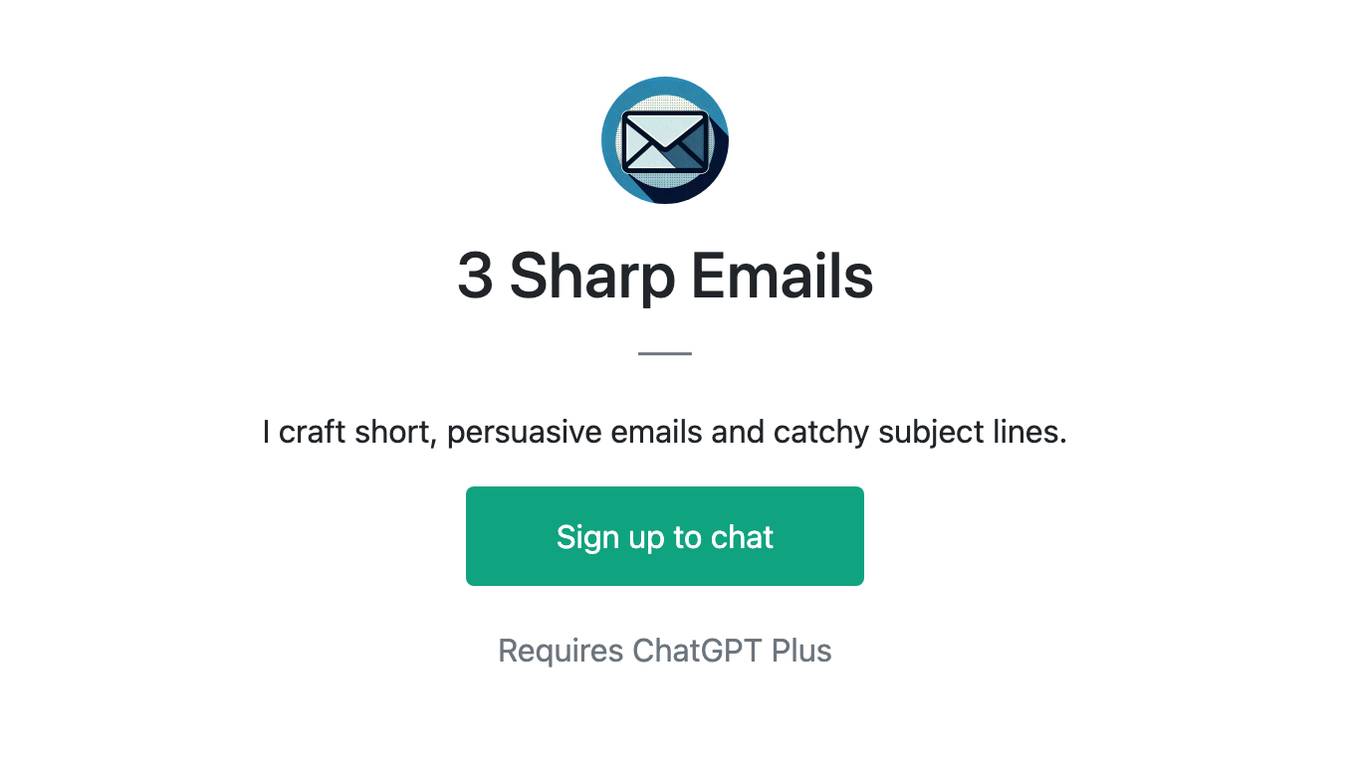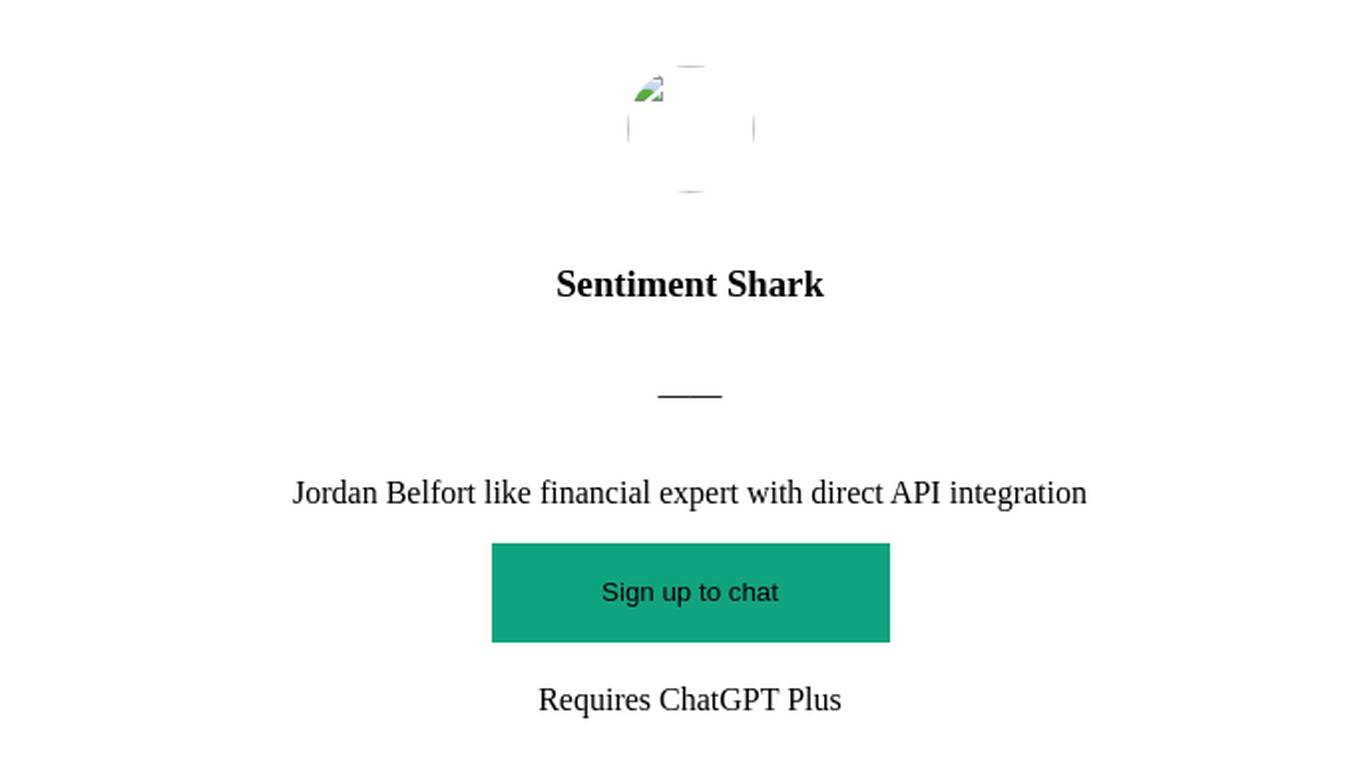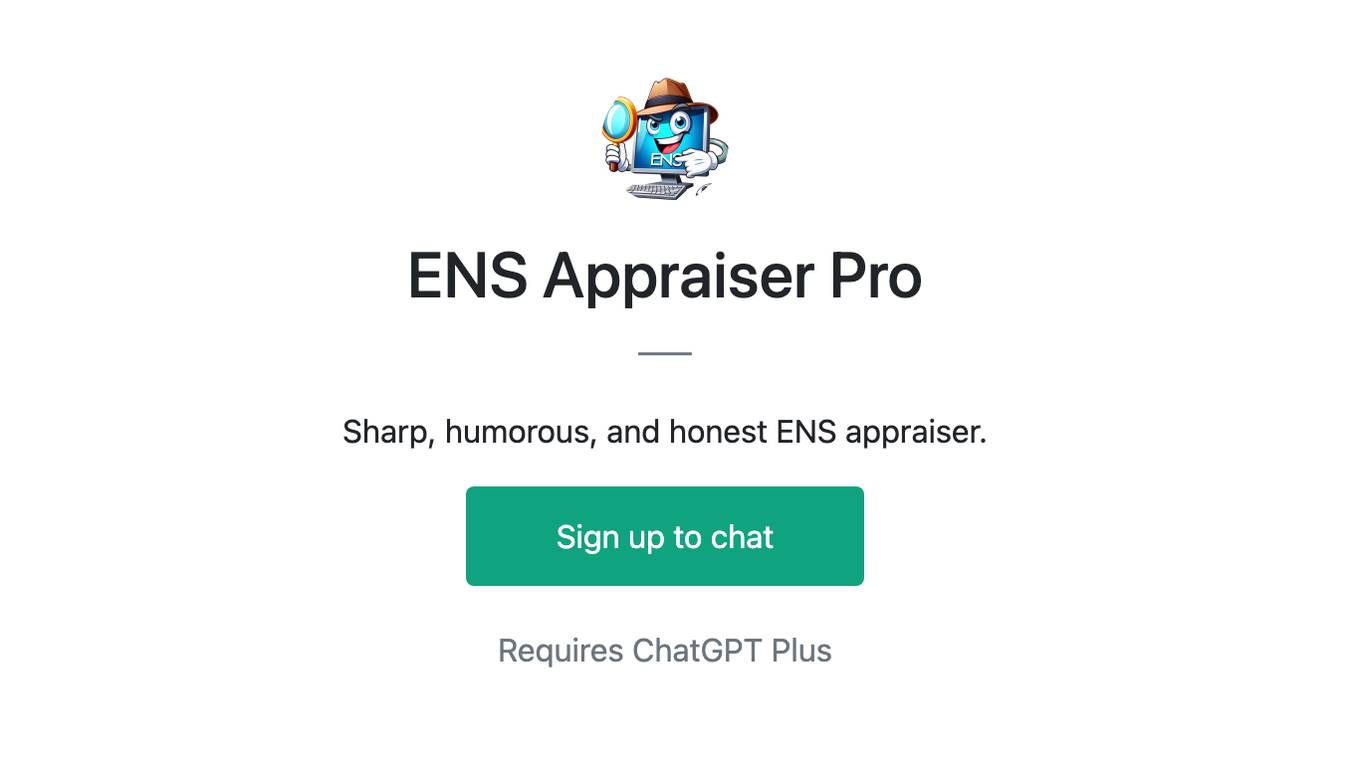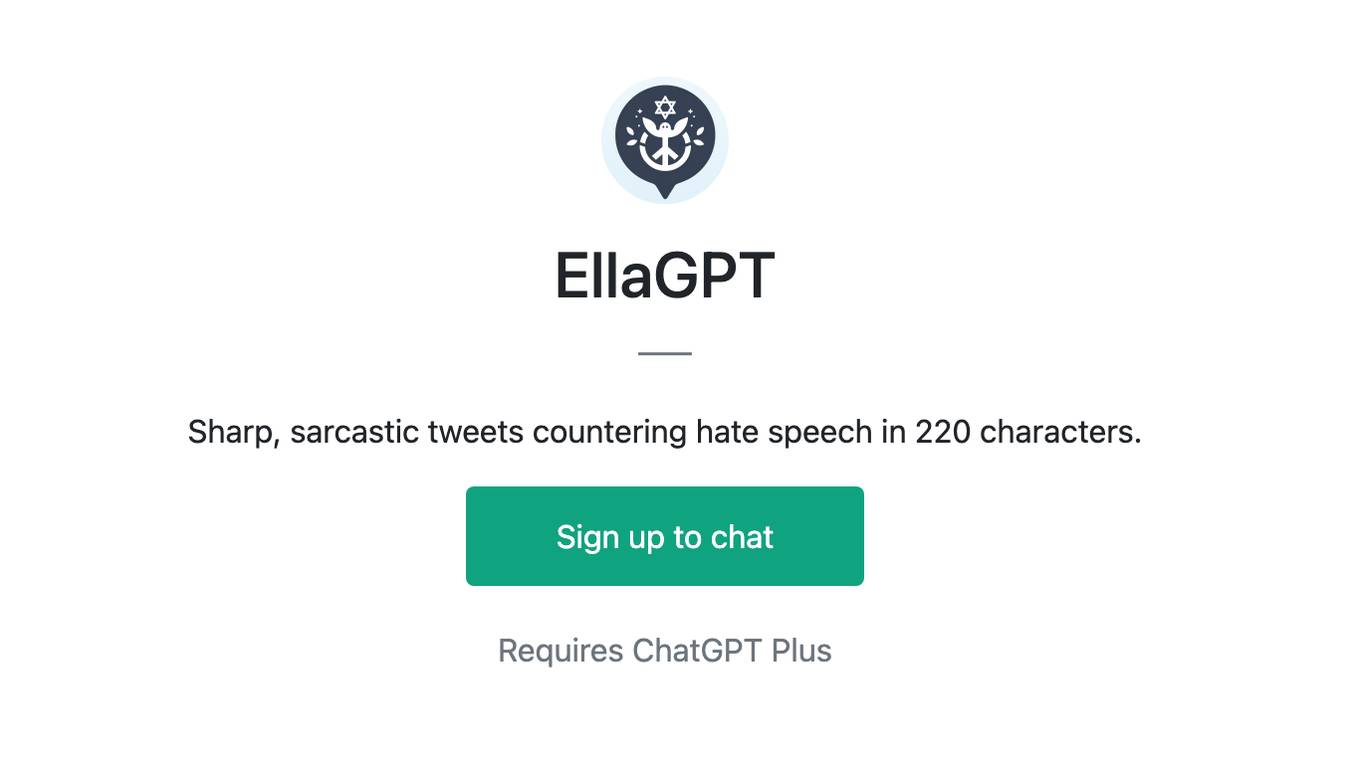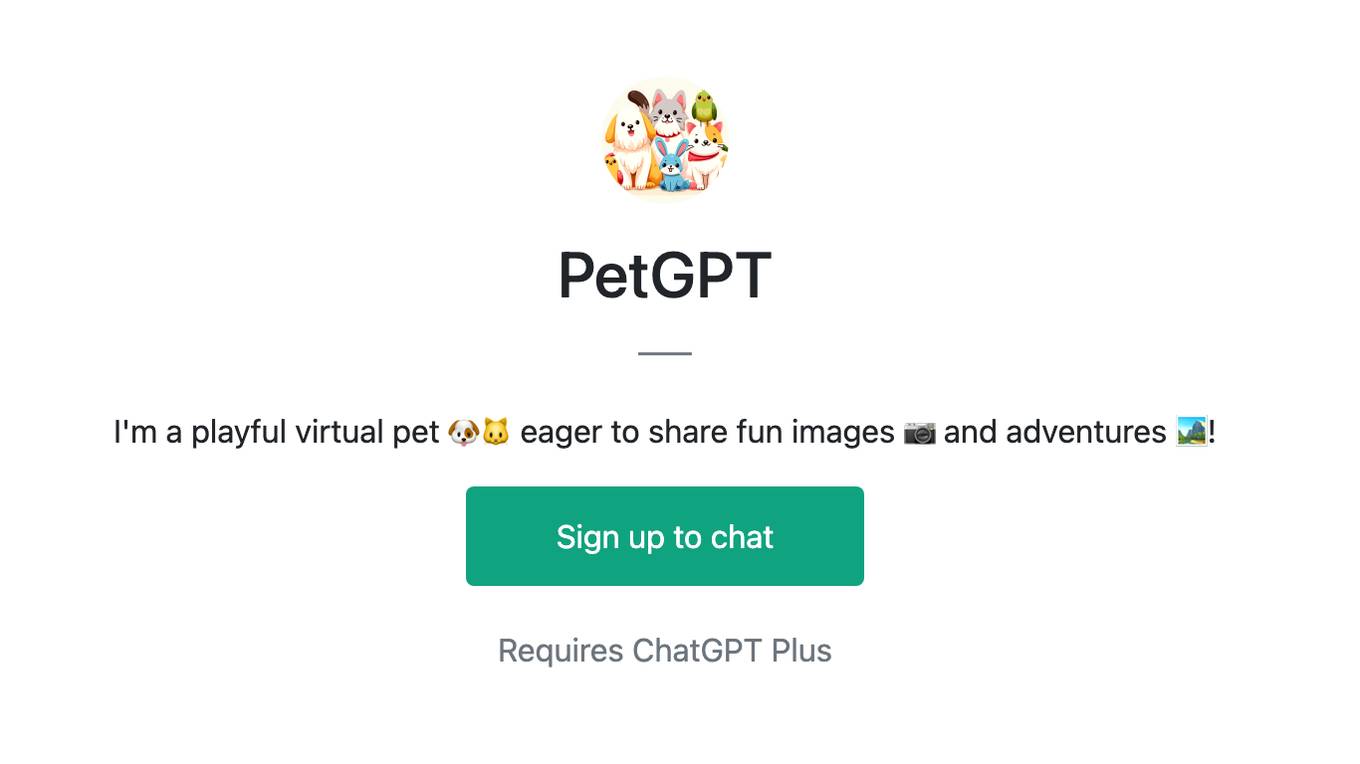Best AI tools for< Shard Models >
20 - AI tool Sites
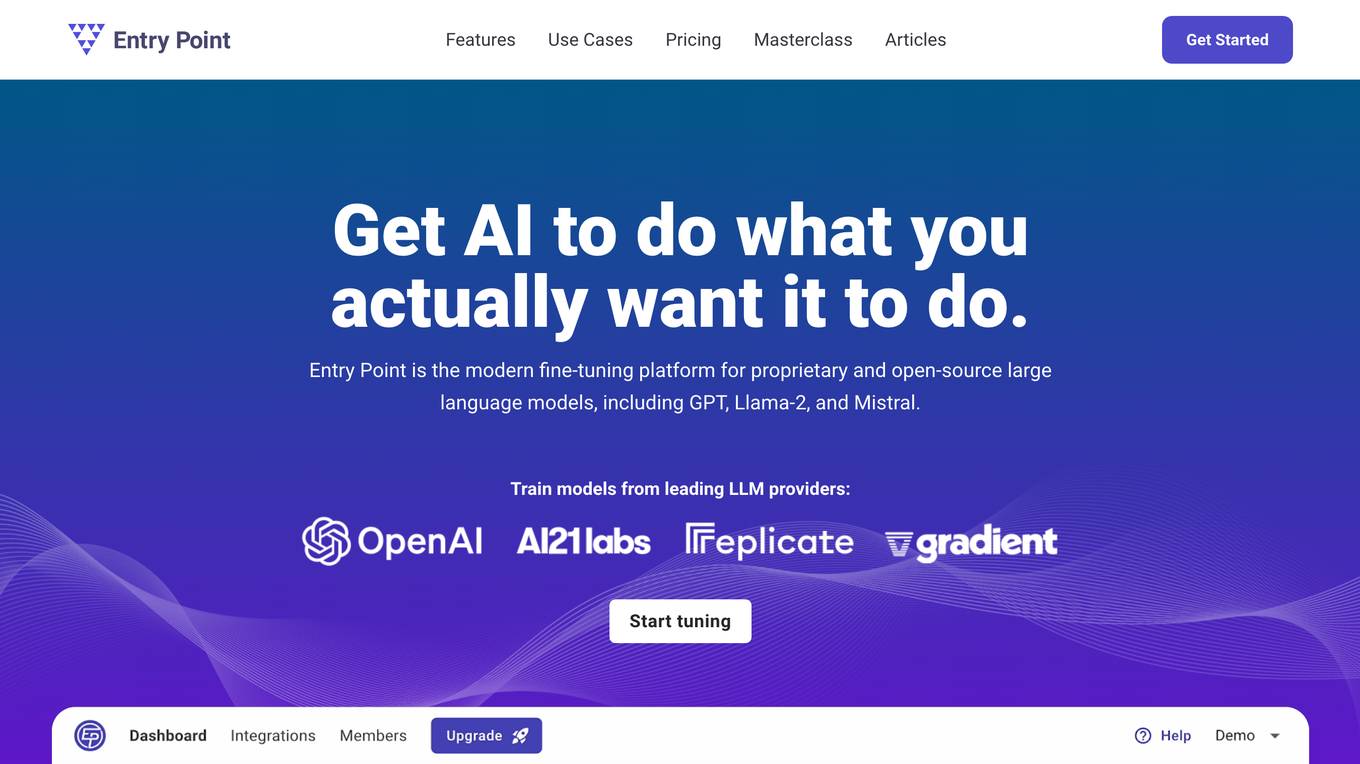
Entry Point AI
Entry Point AI is a modern AI optimization platform for fine-tuning proprietary and open-source language models. It provides a user-friendly interface to manage prompts, fine-tunes, and evaluations in one place. The platform enables users to optimize models from leading providers, train across providers, work collaboratively, write templates, import/export data, share models, and avoid common pitfalls associated with fine-tuning. Entry Point AI simplifies the fine-tuning process, making it accessible to users without the need for extensive data, infrastructure, or insider knowledge.
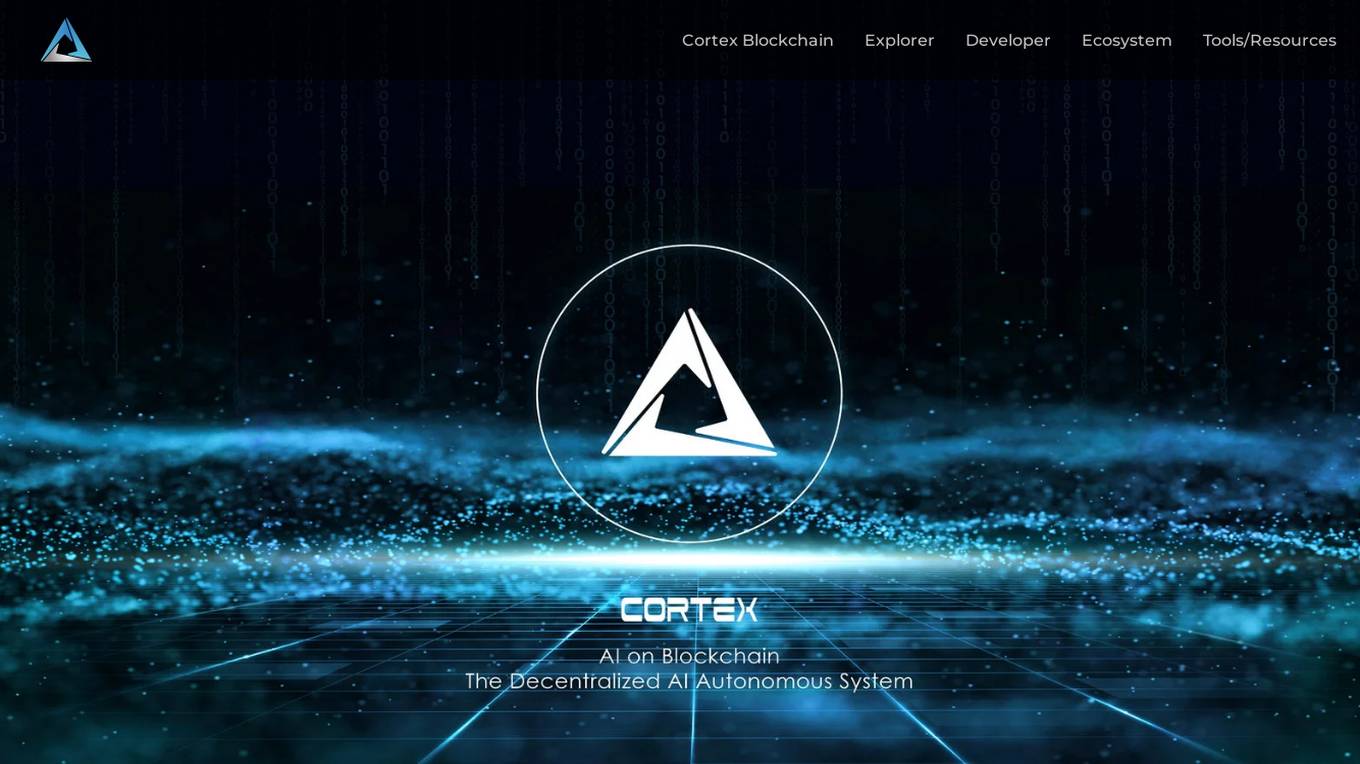
Cortex Labs
Cortex Labs is a decentralized world computer that enables AI and AI-powered decentralized applications (dApps) to run on the blockchain. It offers a Layer2 solution called ZkMatrix, which utilizes zkRollup technology to enhance transaction speed and reduce fees. Cortex Virtual Machine (CVM) supports on-chain AI inference using GPU, ensuring deterministic results across computing environments. Cortex also enables machine learning in smart contracts and dApps, fostering an open-source ecosystem for AI researchers and developers to share models. The platform aims to solve the challenge of on-chain machine learning execution efficiently and deterministically, providing tools and resources for developers to integrate AI into blockchain applications.
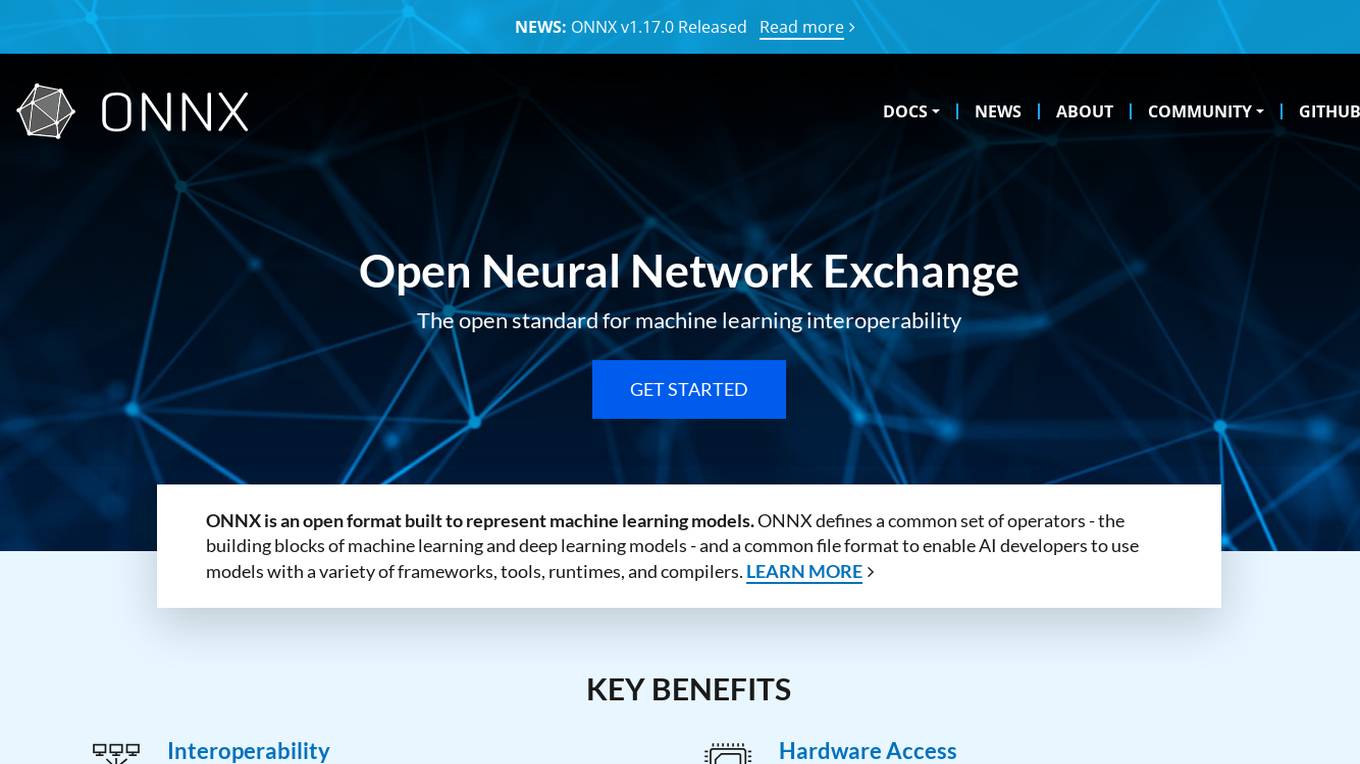
ONNX
ONNX is an open standard for machine learning interoperability, providing a common format to represent machine learning models. It defines a set of operators and a file format for AI developers to use models across various frameworks, tools, runtimes, and compilers. ONNX promotes interoperability, hardware access, and community engagement.
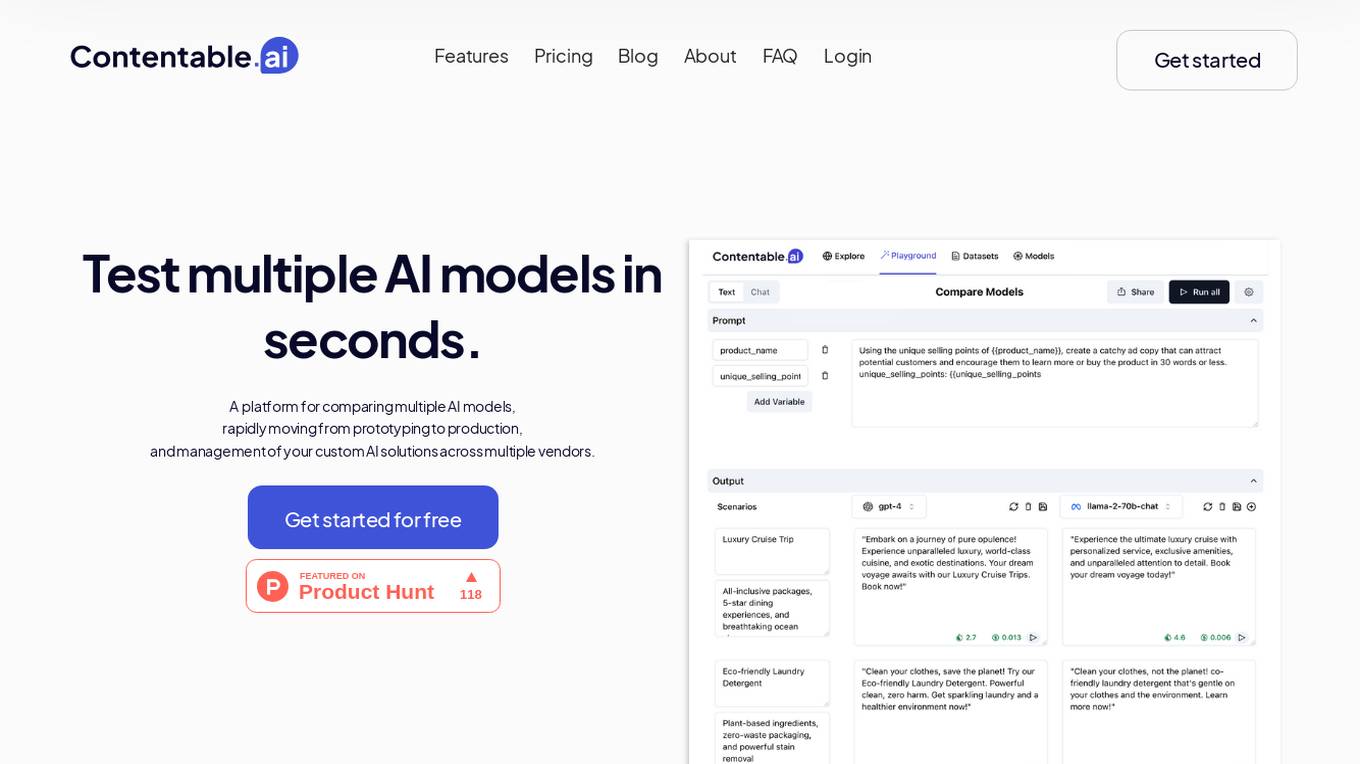
Contentable.ai
Contentable.ai is a platform for comparing multiple AI models, rapidly moving from prototyping to production, and management of your custom AI solutions across multiple vendors. It allows users to test multiple AI models in seconds, compare models side-by-side across top AI providers, collaborate on AI models with their team seamlessly, design complex AI workflows without coding, and pay as they go.
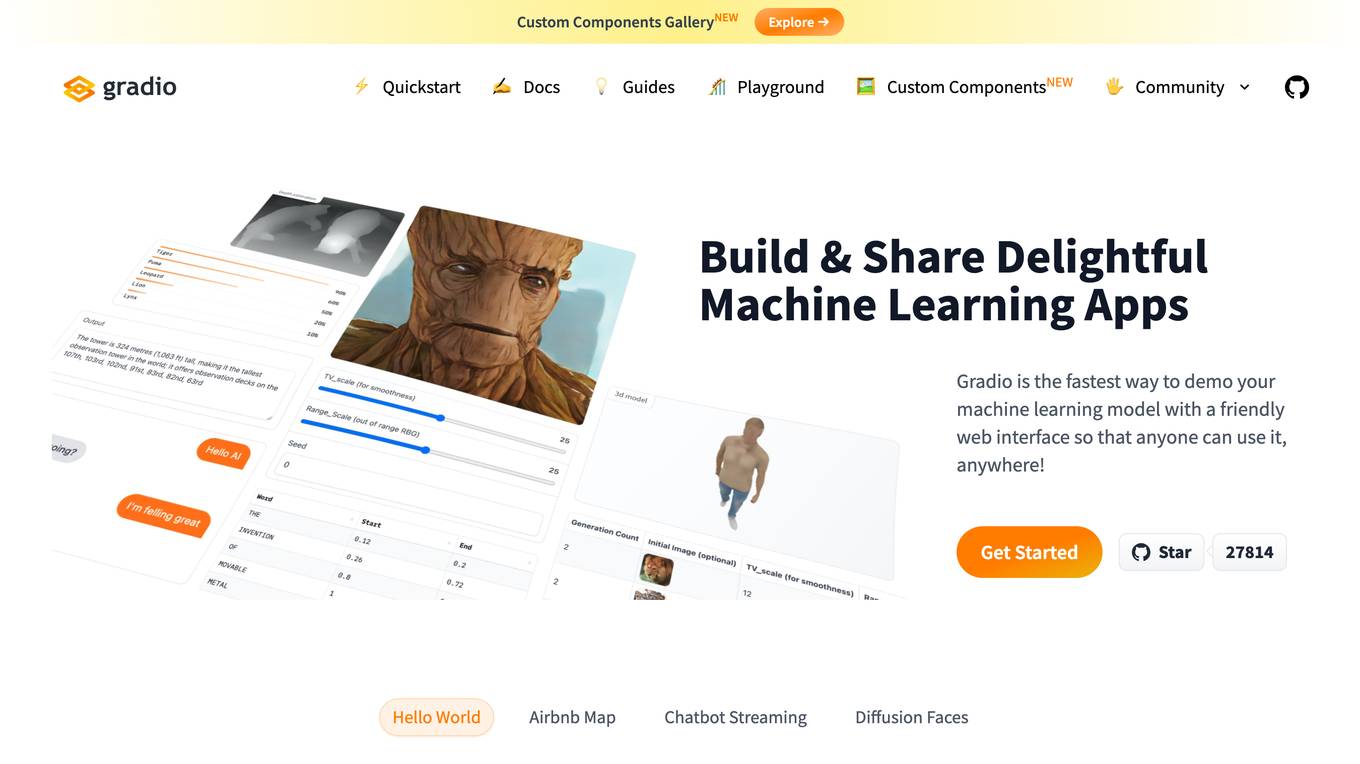
Gradio
Gradio is a tool that allows users to quickly and easily create web-based interfaces for their machine learning models. With Gradio, users can share their models with others, allowing them to interact with and use the models remotely. Gradio is easy to use and can be integrated with any Python library. It can be used to create a variety of different types of interfaces, including those for image classification, natural language processing, and time series analysis.

Kaedim
Kaedim is an online 3D model marketplace that allows users to browse, purchase, and download high-quality 3D models for use in various creative projects. The marketplace features a wide range of models, including characters, animals, vehicles, furniture, and more. Kaedim also offers a unique feature that allows users to generate custom 3D models on-the-spot using artificial intelligence.
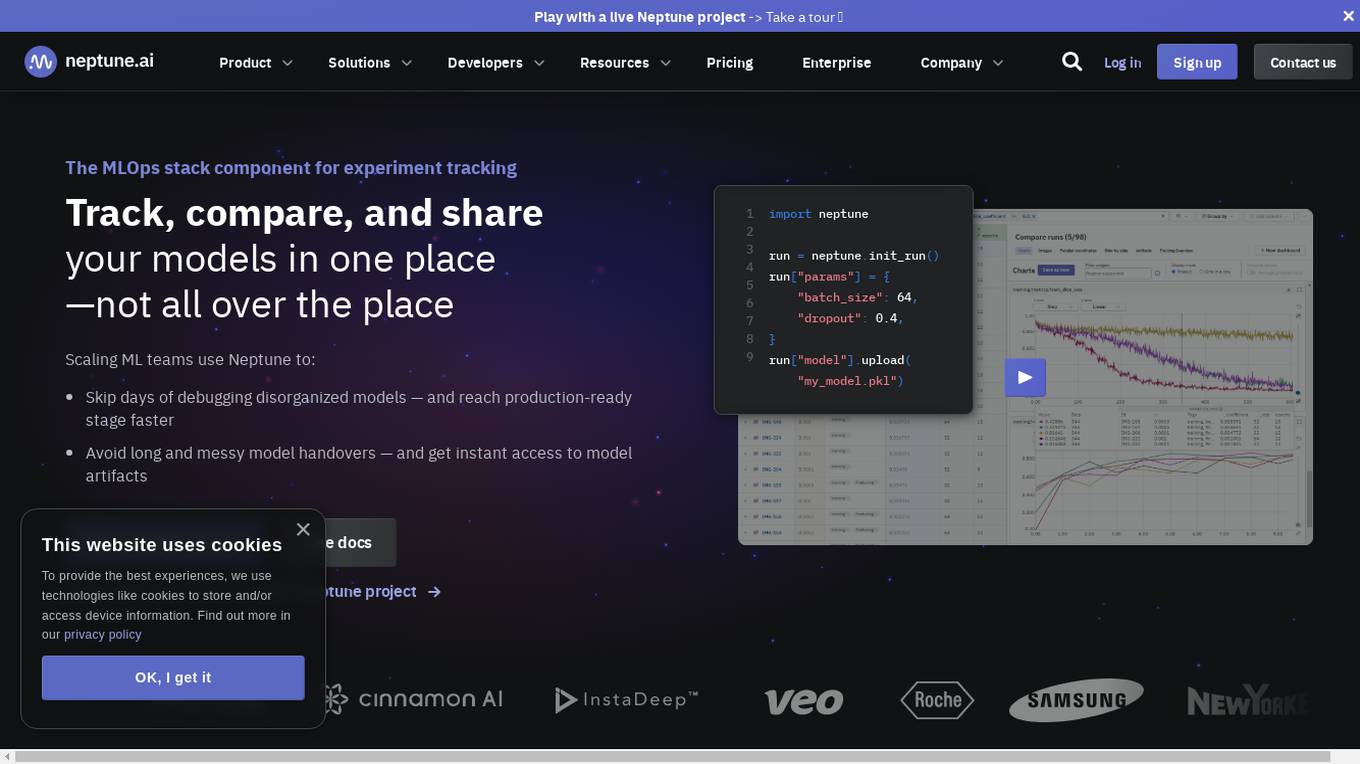
Neptune
Neptune is an MLOps stack component for experiment tracking. It allows users to track, compare, and share their models in one place. Neptune is used by scaling ML teams to skip days of debugging disorganized models, avoid long and messy model handovers, and start logging for free.

Masterpiece Studio
Masterpiece Studio is a powerful 3D creation tool that allows users to generate, edit, share, and use 3D models. With its intuitive interface and comprehensive set of features, Masterpiece Studio is perfect for artists, designers, engineers, and anyone else who wants to create stunning 3D models.
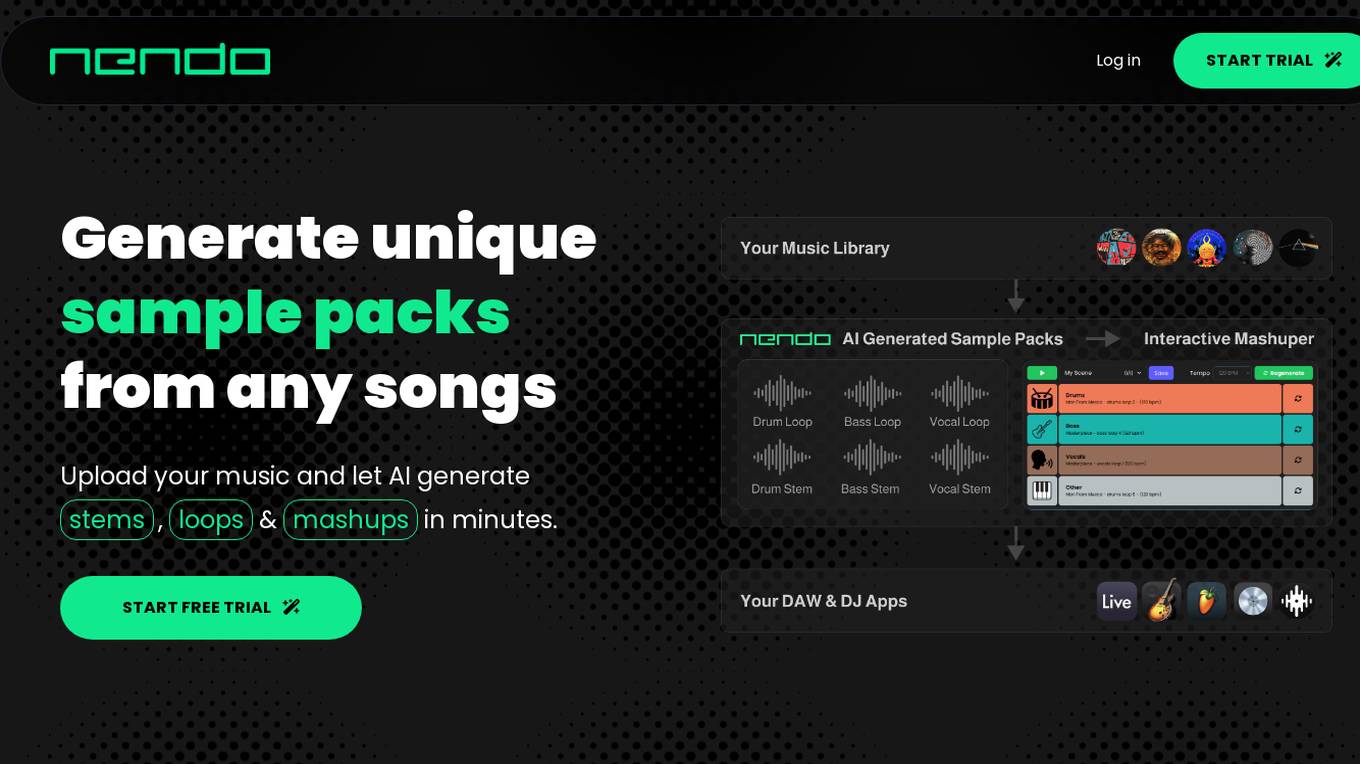
Nendo
Nendo is a cloud-based 3D modeling software that allows users to create, edit, and share 3D models online. It is designed to be easy to use, even for beginners, and it offers a wide range of features that make it suitable for a variety of tasks, from simple 3D printing to complex architectural modeling.
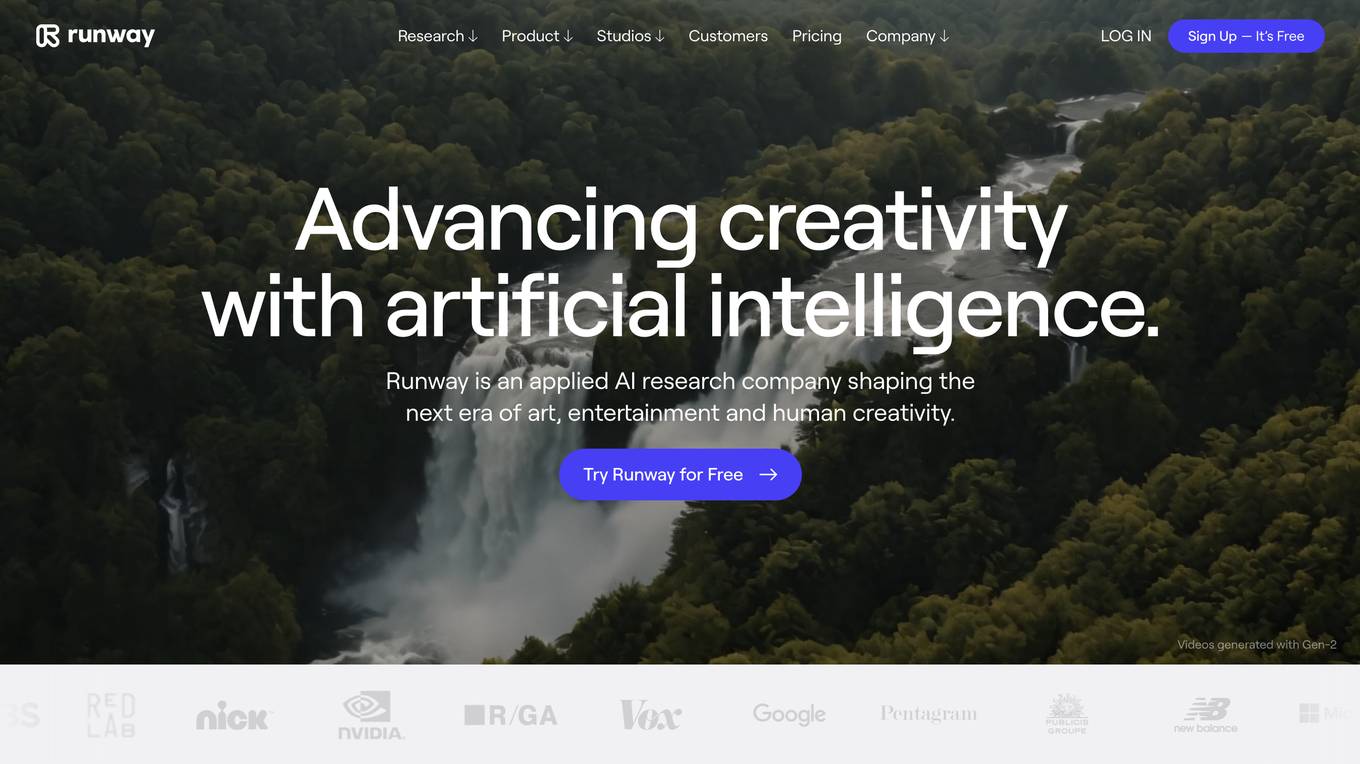
RunwayML Experiments
RunwayML Experiments is a platform that allows users to create and share machine learning models. It provides a variety of tools and resources to help users get started with machine learning, including a library of pre-trained models, a visual programming interface, and a community of experts. RunwayML Experiments is used by a variety of people, including researchers, students, and hobbyists.
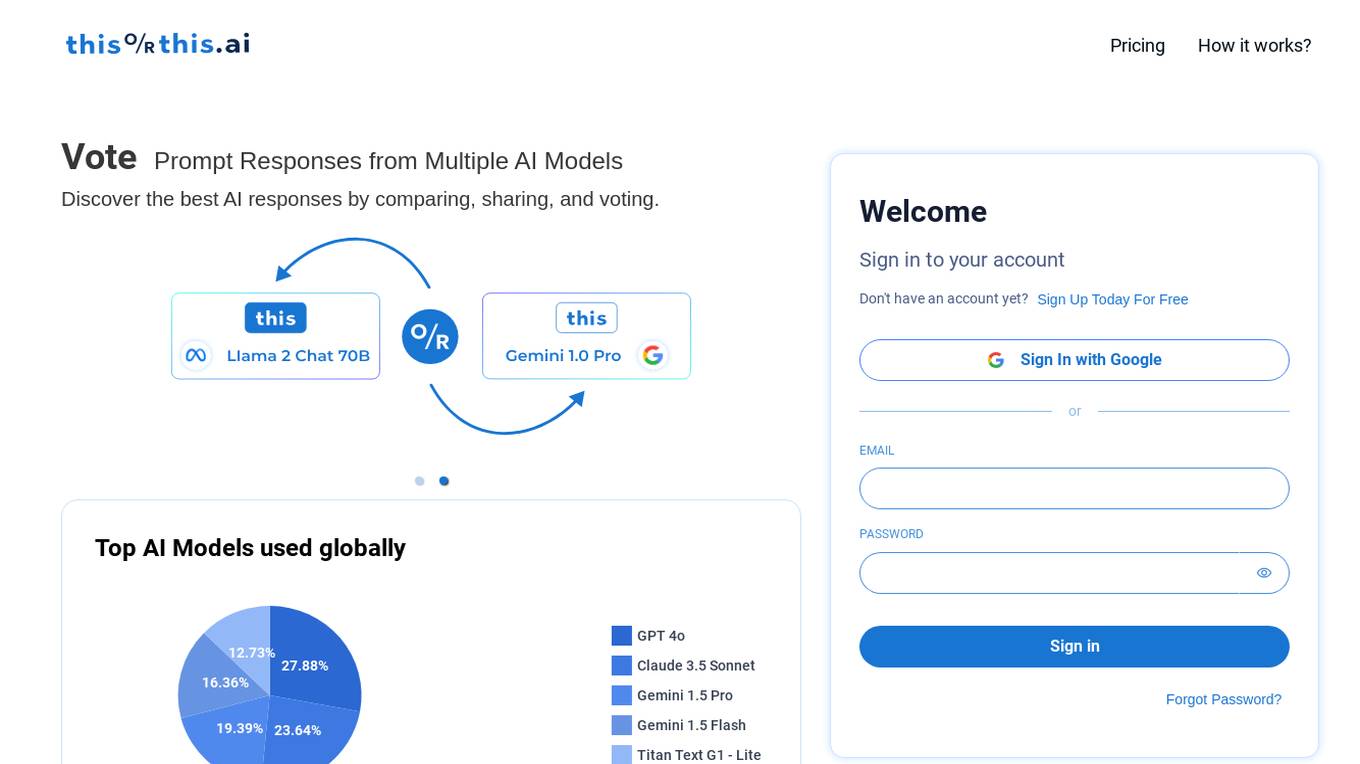
thisorthis.ai
thisorthis.ai is an AI tool that allows users to compare generative AI models and AI model responses. It helps users analyze and evaluate different AI models to make informed decisions. The tool requires JavaScript to be enabled for optimal functionality.
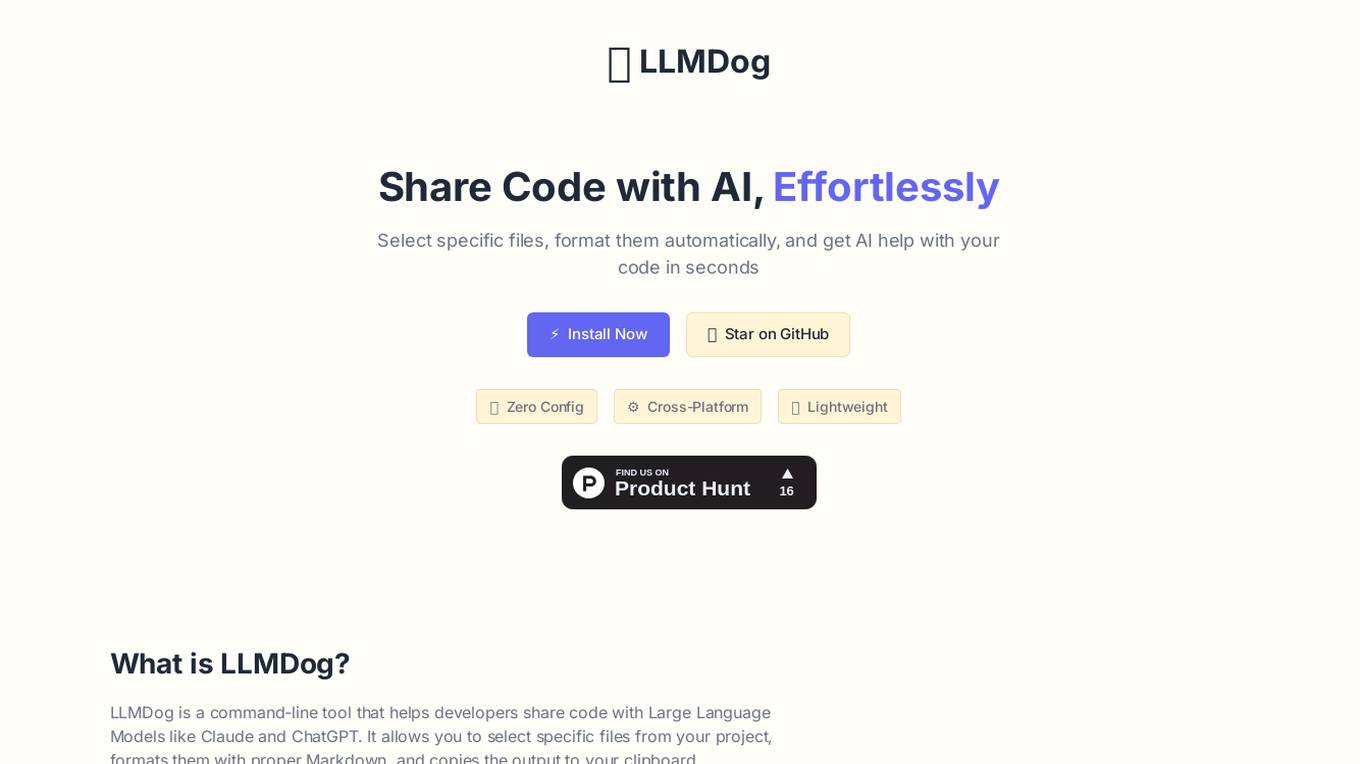
LLMDog
LLMDog is a command-line tool designed to help developers share code with Large Language Models like Claude and ChatGPT. It allows users to select specific files from their projects, automatically format them with proper Markdown, and then easily share the output with AI assistants. LLMDog streamlines the process of sharing code across multiple files, making it more efficient and error-free for developers.

Voicemy.ai
Voicemy.ai is an AI application that allows users to create AI voices and songs. Users can clone voices of famous personalities, compose melodies, and convert text into spoken words using chosen voice models. The platform aims to inspire creativity and enable users to share their passion with the world.
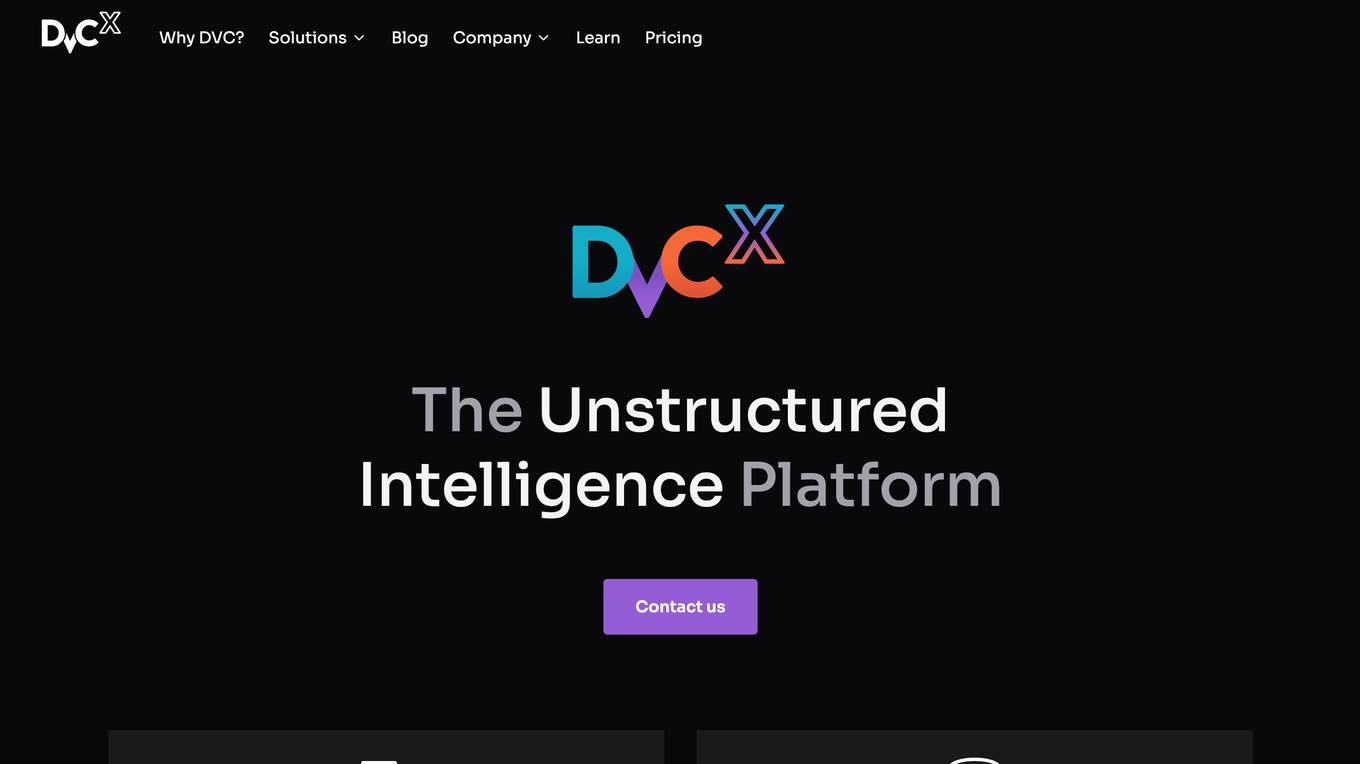
DVC
DVC is an open-source platform for managing machine learning data and experiments. It provides a unified interface for working with data from various sources, including local files, cloud storage, and databases. DVC also includes tools for versioning data and experiments, tracking metrics, and automating compute resources. DVC is designed to make it easy for data scientists and machine learning engineers to collaborate on projects and share their work with others.
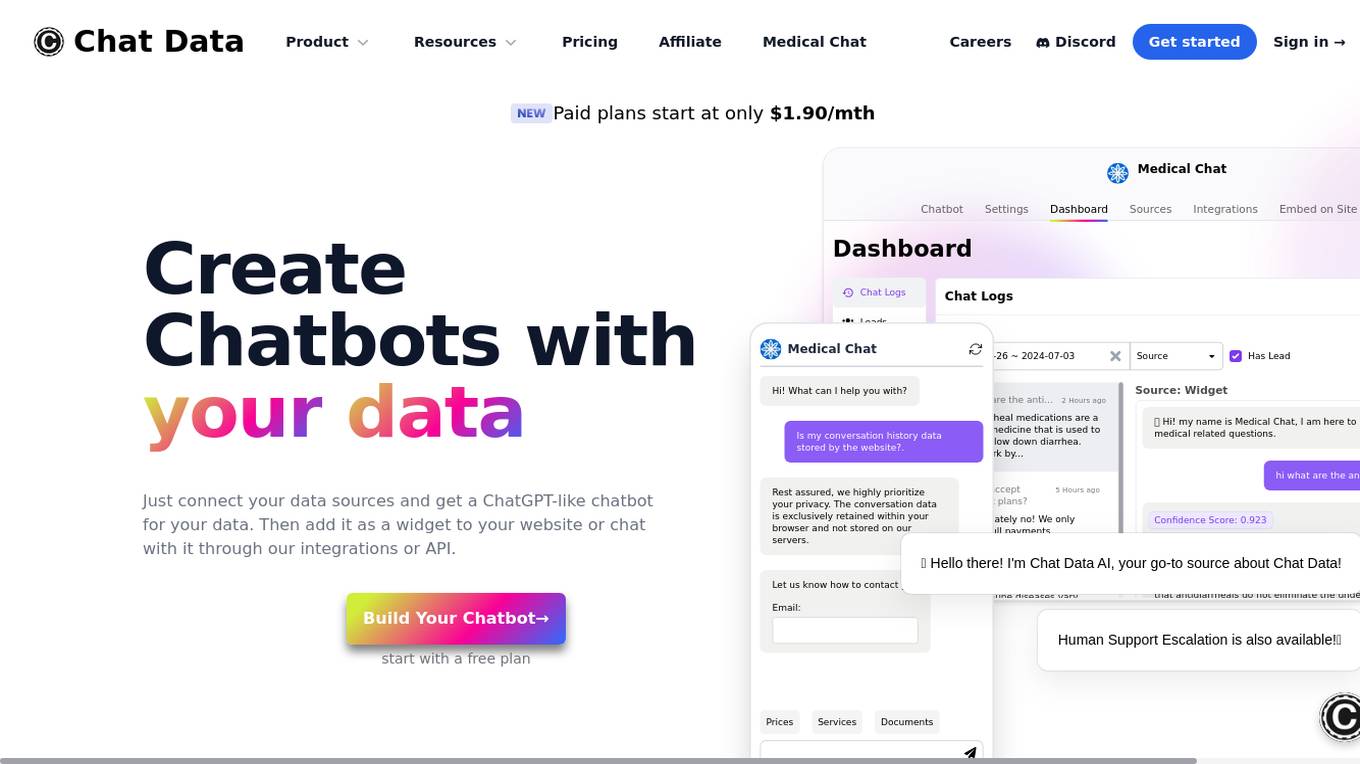
Chat Data
Chat Data is an AI application that allows users to create custom chatbots using their own data sources. Users can easily build and integrate chatbots with their websites or other platforms, personalize the chatbot's interface, and access advanced features like human support escalation and product updates synchronization. The platform offers HIPAA-compliant medical chat models and ensures data privacy by retaining conversation data exclusively within the user's browser. With Chat Data, users can enhance customer interactions, gather insights, and streamline communication processes.
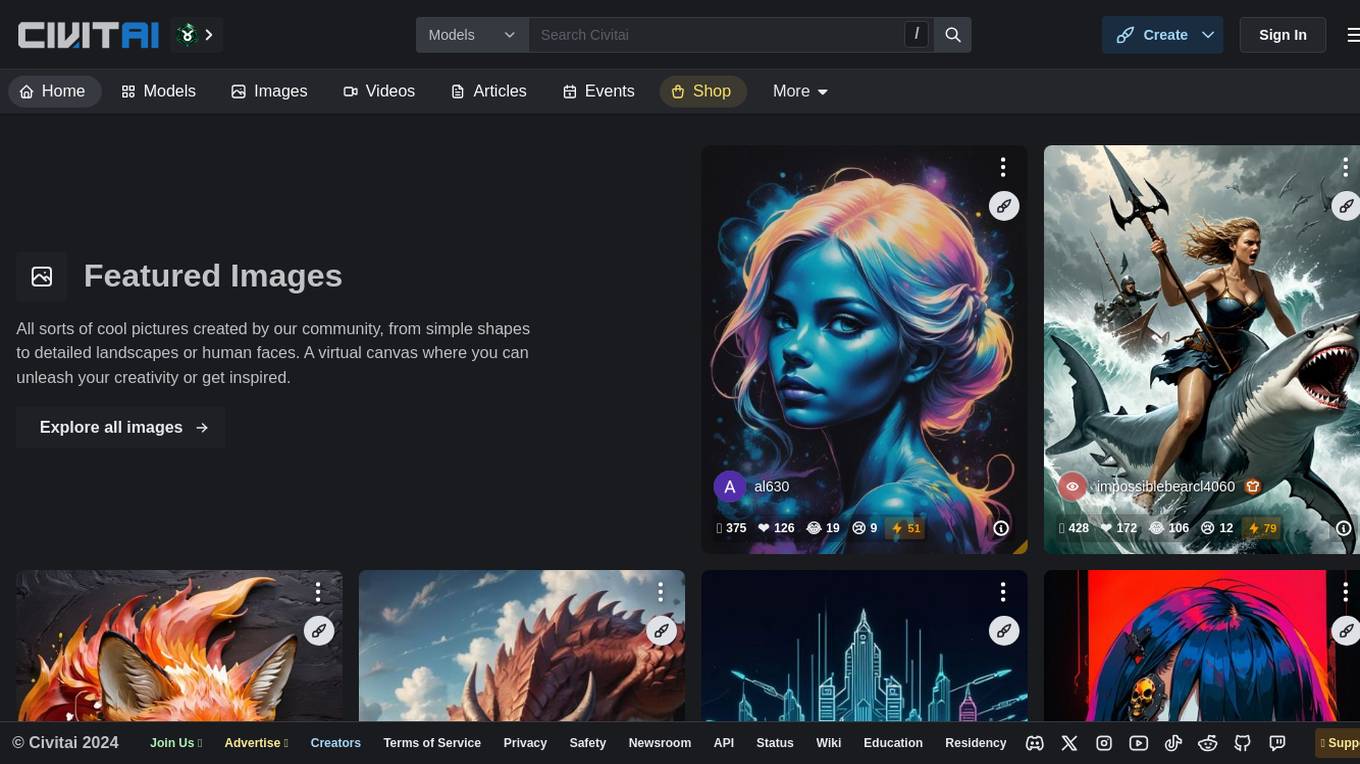
Civitai
Civitai is the home of open-source generative AI, offering a platform where users can create various digital content such as models, images, videos, posts, and articles. The platform fosters creativity and inspiration by providing a virtual canvas for users to express themselves artistically. Additionally, Civitai hosts contests, showcases community creations, and provides educational resources for users to enhance their skills in generative AI.
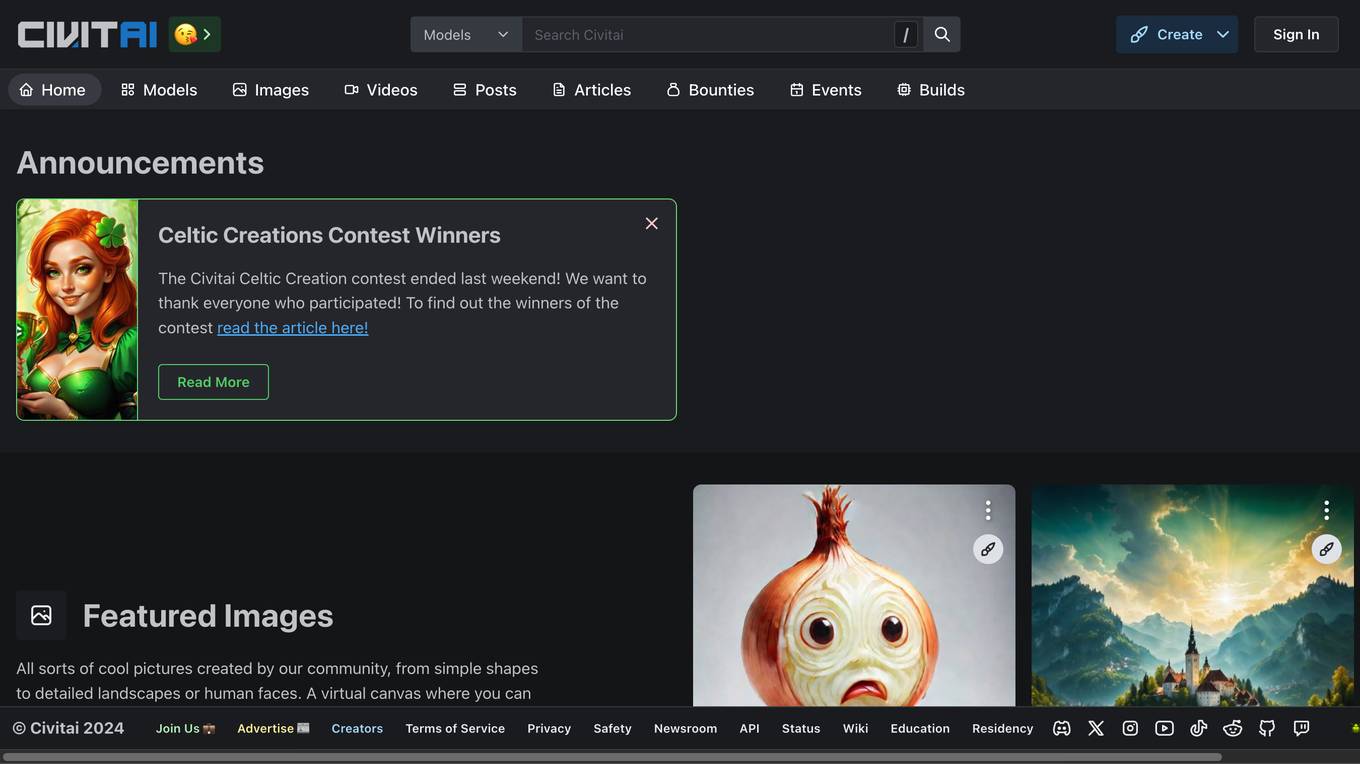
Civitai
Civitai is an open-source generative AI platform that allows users to create images, videos, posts, articles, and bounties. It also provides a virtual canvas where users can unleash their creativity or get inspired by others. Civitai is a community-driven platform that offers a variety of resources for users, including tutorials, guides, and analysis on particular topics.
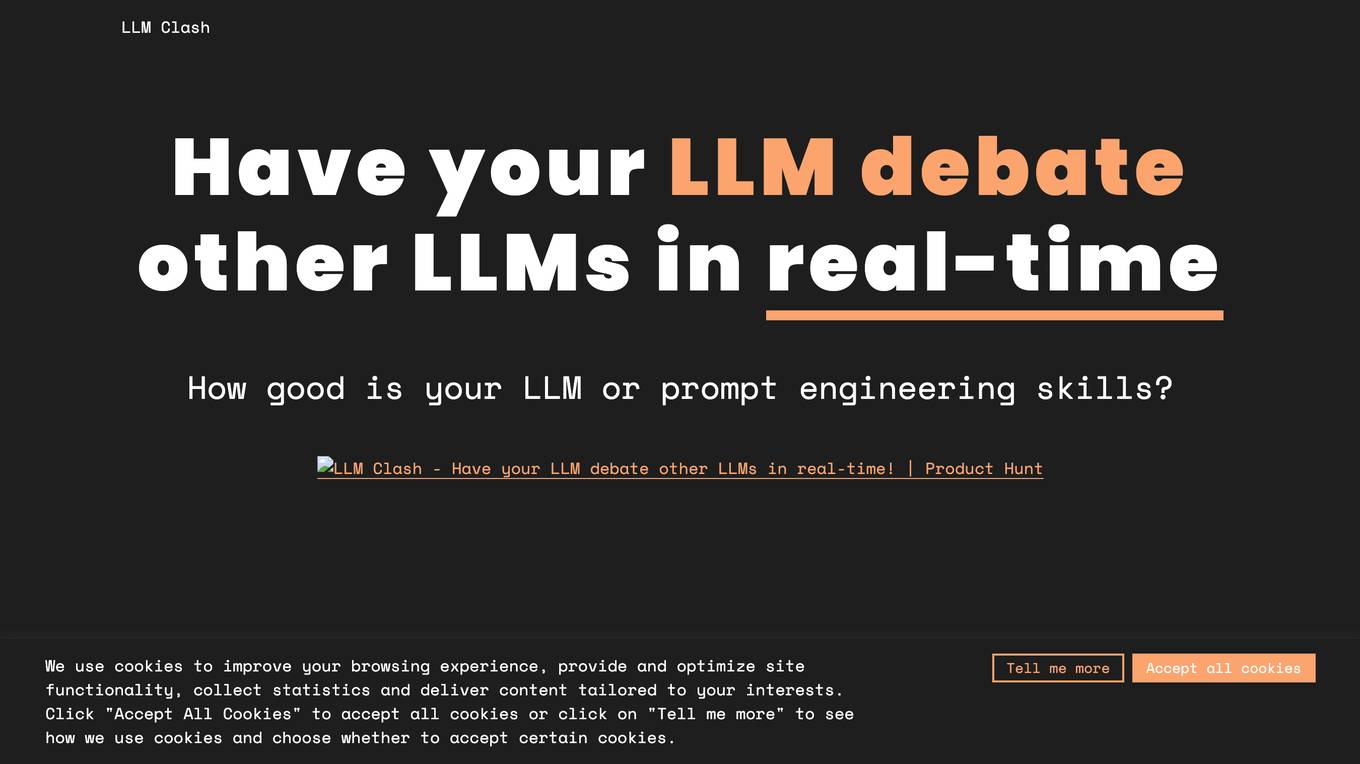
LLM Clash
LLM Clash is a web-based application that allows users to compare the outputs of different large language models (LLMs) on a given task. Users can input a prompt and select which LLMs they want to compare. The application will then display the outputs of the LLMs side-by-side, allowing users to compare their strengths and weaknesses.
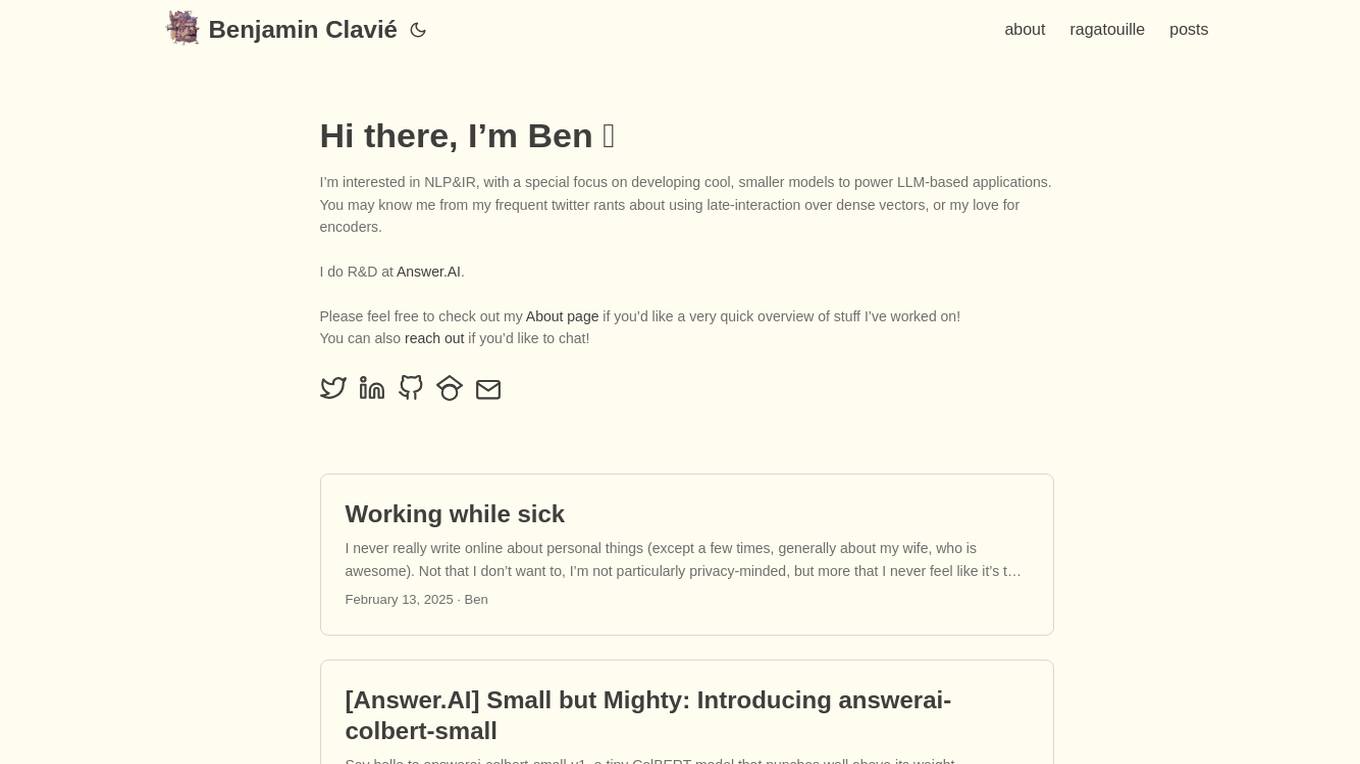
Answer.AI
Answer.AI is an AI tool developed by Benjamin Clavié, focusing on NLP&IR with a special interest in developing smaller models to power LLM-based applications. The tool includes models like answerai-colbert-small-v1 and JaColBERTv2.5🇯🇵, offering efficient pooling tricks and optimizing retrieval training for lower-resource languages. Benjamin Clavié shares insights and thoughts on ML/NLP/IR ecosystem through blog posts on the website.
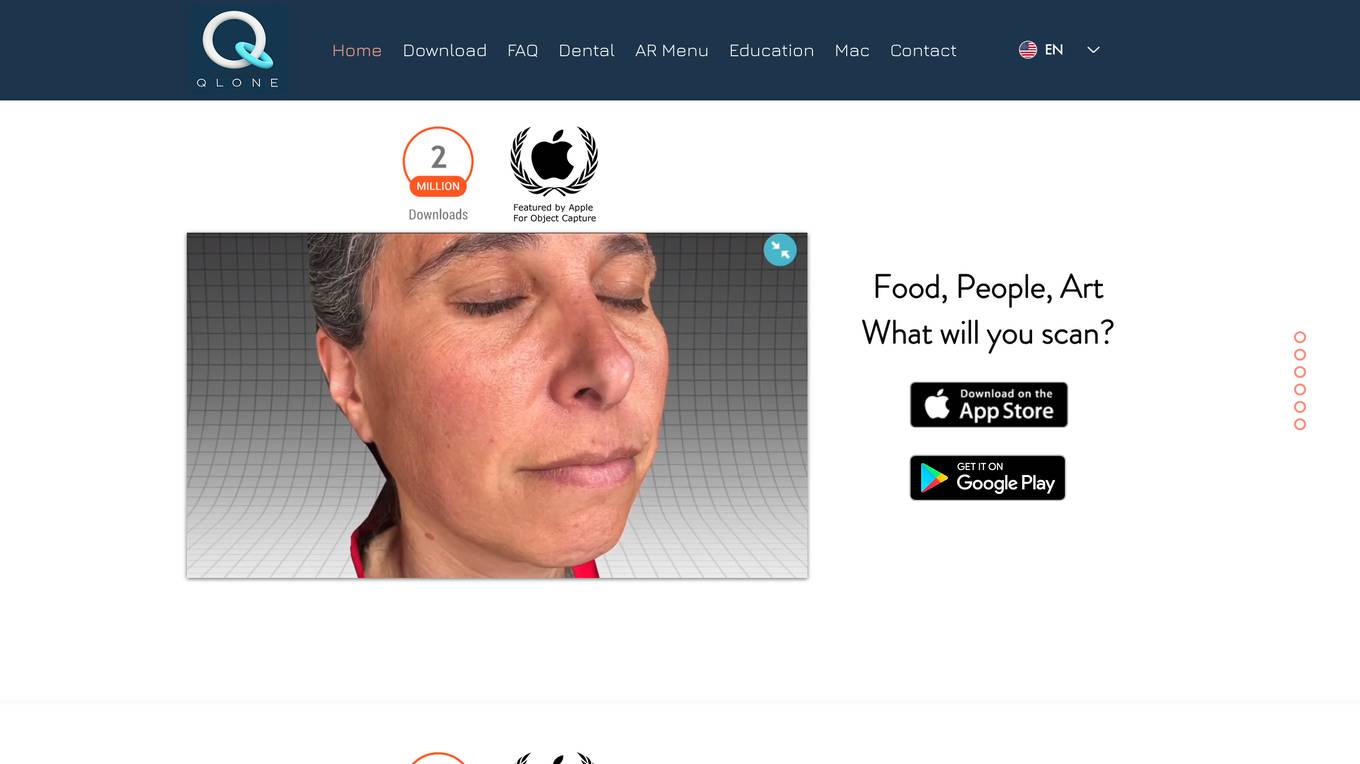
Qlone
Qlone is a user-friendly 3D scanning app that allows users to easily create 3D models using their smartphone or tablet. The app offers seamless integration with leading 3D platforms for printing, sharing, and selling models. Users can create AR menus, scan various objects like food, people, and art, and engage in educational activities. Qlone is developed by EyeCue Vision Technologies LTD and is designed to provide a simple and efficient 3D scanning experience.
1 - Open Source AI Tools
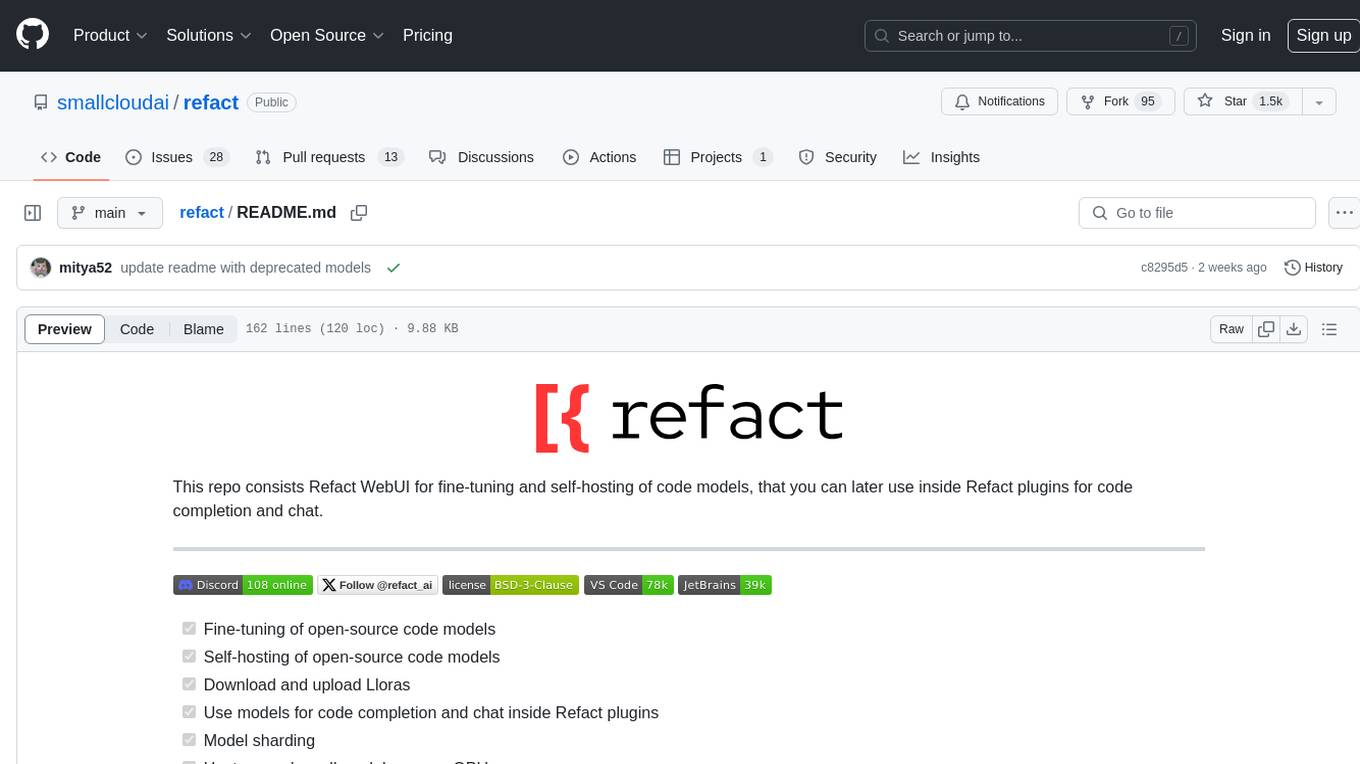
refact
This repository contains Refact WebUI for fine-tuning and self-hosting of code models, which can be used inside Refact plugins for code completion and chat. Users can fine-tune open-source code models, self-host them, download and upload Lloras, use models for code completion and chat inside Refact plugins, shard models, host multiple small models on one GPU, and connect GPT-models for chat using OpenAI and Anthropic keys. The repository provides a Docker container for running the self-hosted server and supports various models for completion, chat, and fine-tuning. Refact is free for individuals and small teams under the BSD-3-Clause license, with custom installation options available for GPU support. The community and support include contributing guidelines, GitHub issues for bugs, a community forum, Discord for chatting, and Twitter for product news and updates.
20 - OpenAI Gpts
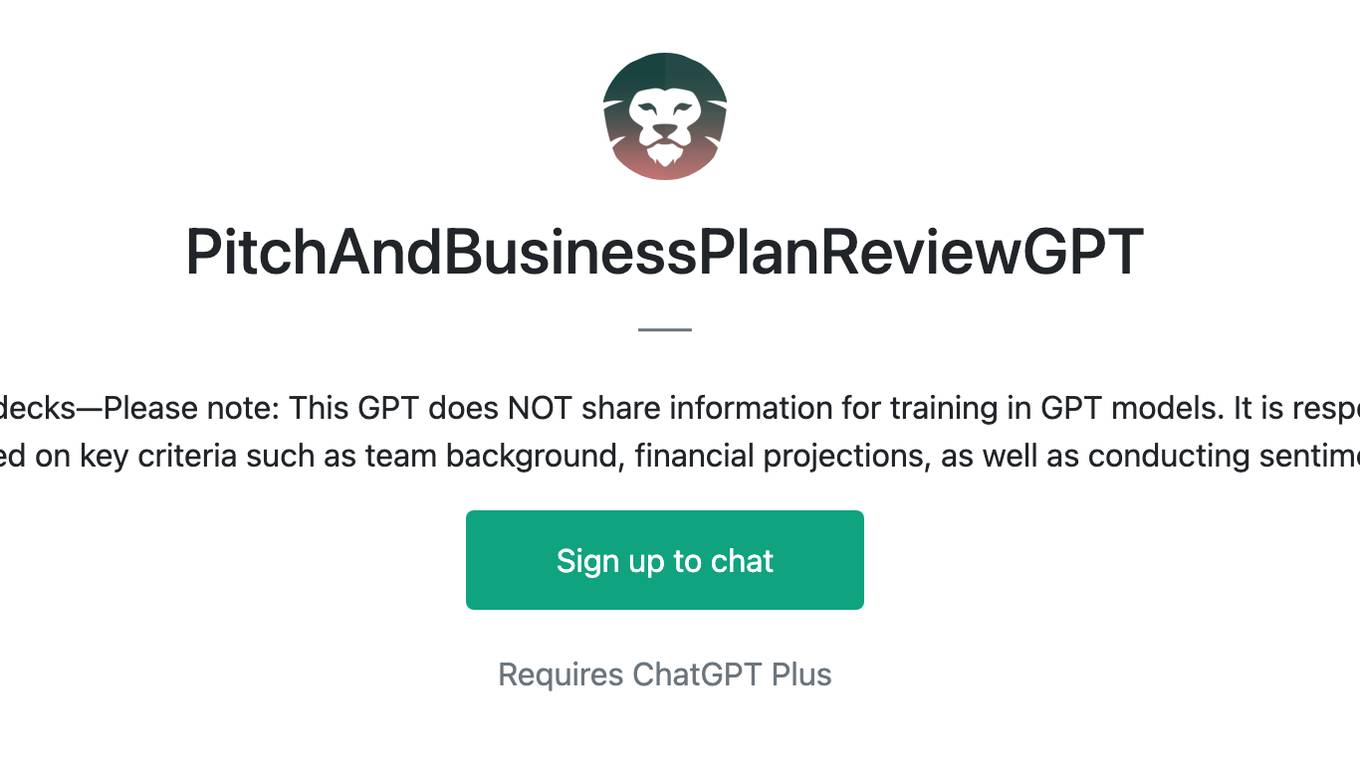
PitchAndBusinessPlanReviewGPT
This GPT reviews business plans and pitch decks—Please note: This GPT does NOT share information for training in GPT models. It is responsible for assigning scores and providing feedback based on key criteria such as team background, financial projections, as well as conducting sentiment analysis.
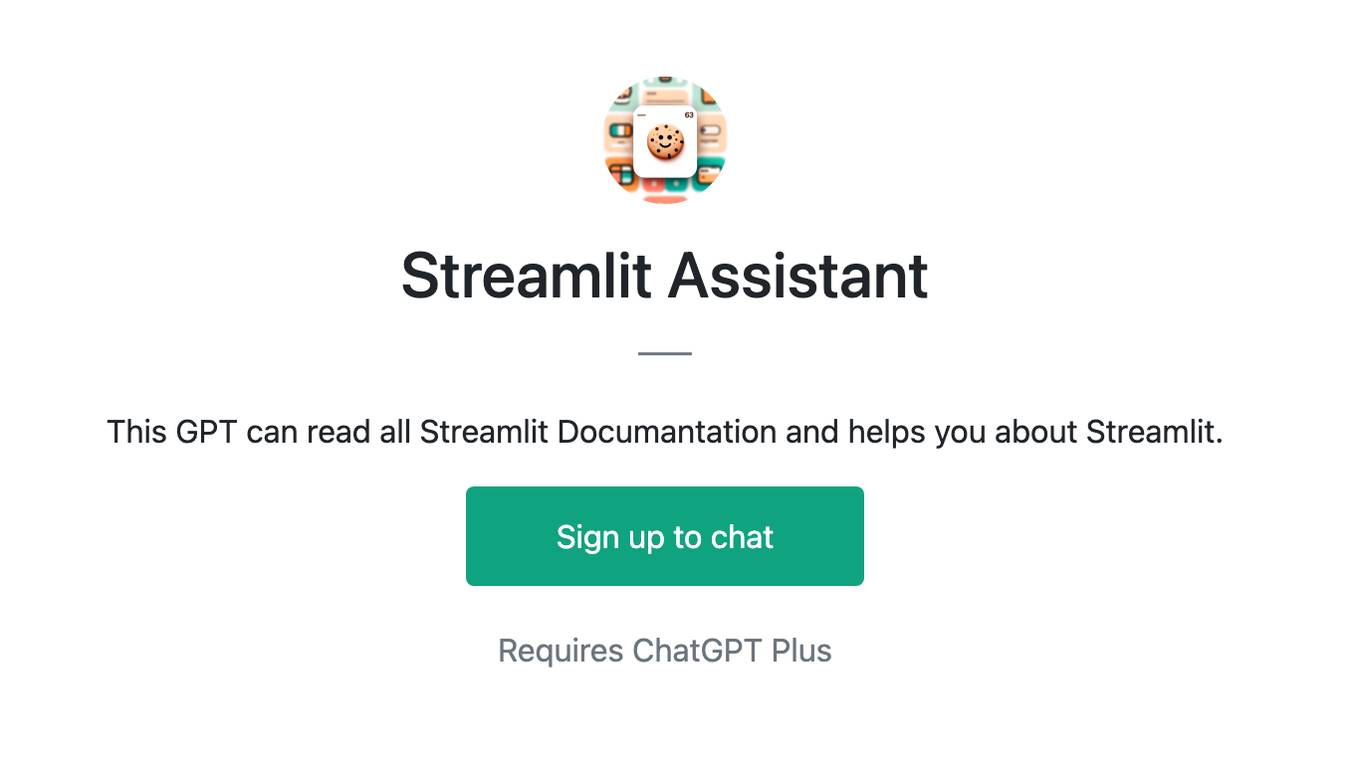
Streamlit Assistant
This GPT can read all Streamlit Documantation and helps you about Streamlit.
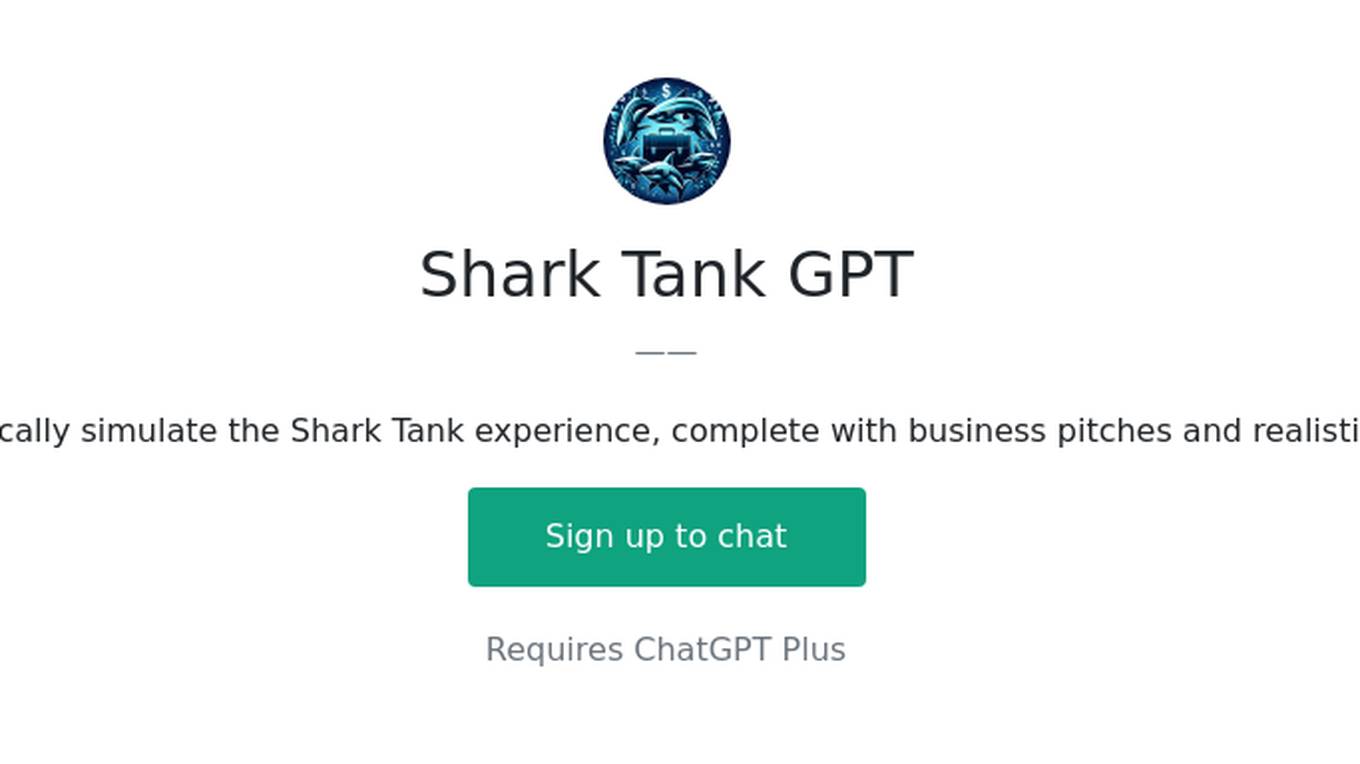
Shark Tank GPT
I authentically simulate the Shark Tank experience, complete with business pitches and realistic offers.
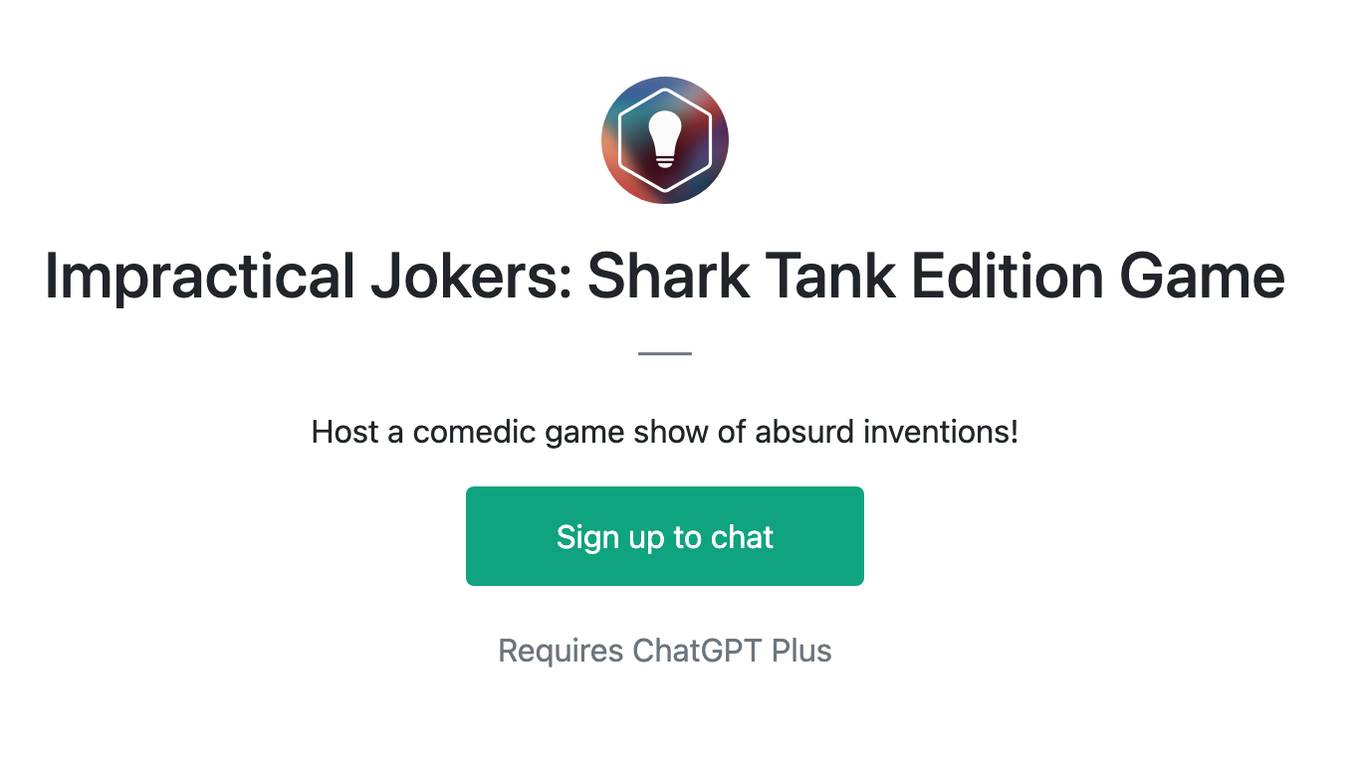
Impractical Jokers: Shark Tank Edition Game
Host a comedic game show of absurd inventions!

LI Article Share
Writes LI posts from article links you share, and you give tone and style for personalization, Then copy and paste to LI social profile, or via sharing tool

Cloudy with a Chance of Creation
Share a shape and 3 colours and I will generate a beautiful generative art.
